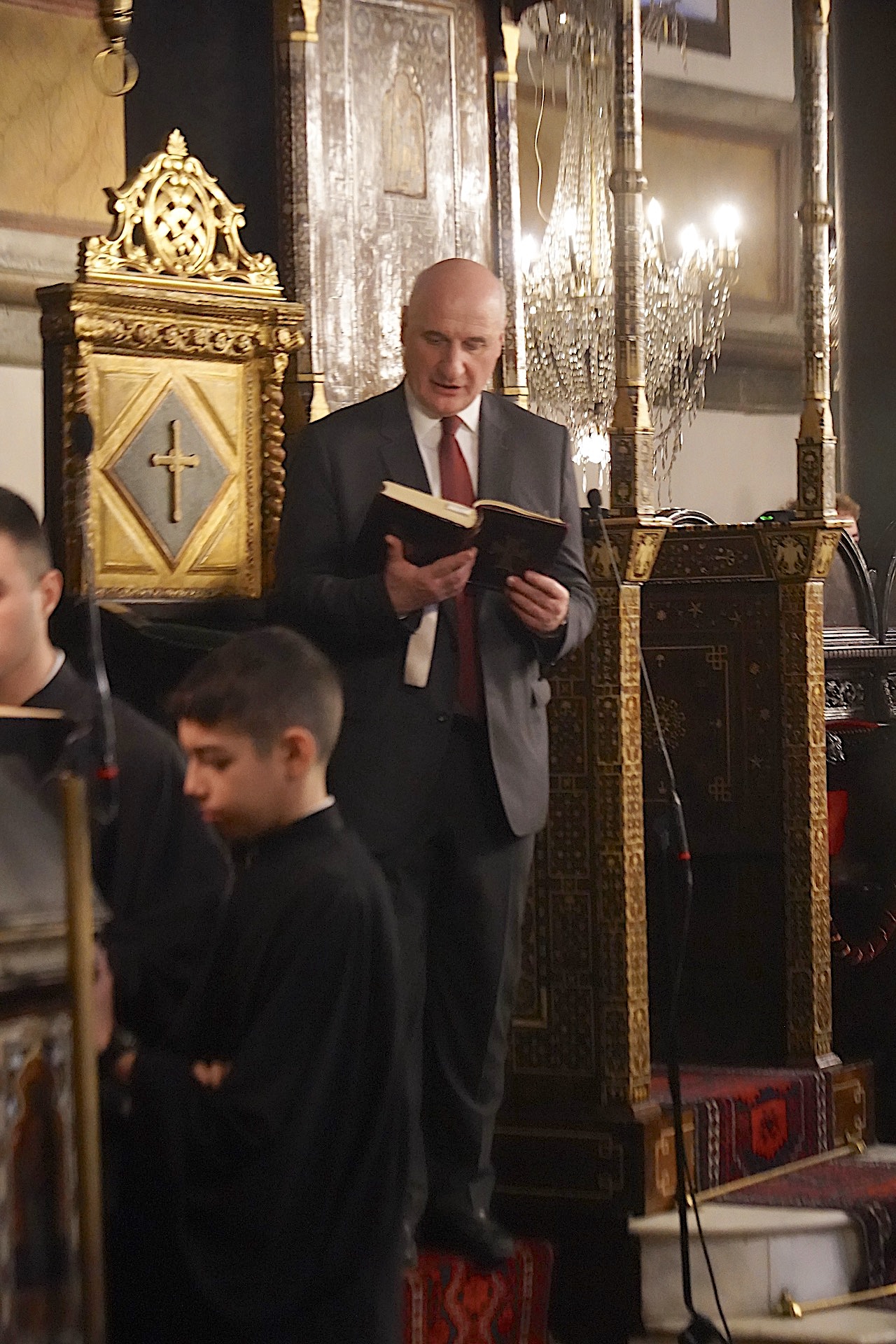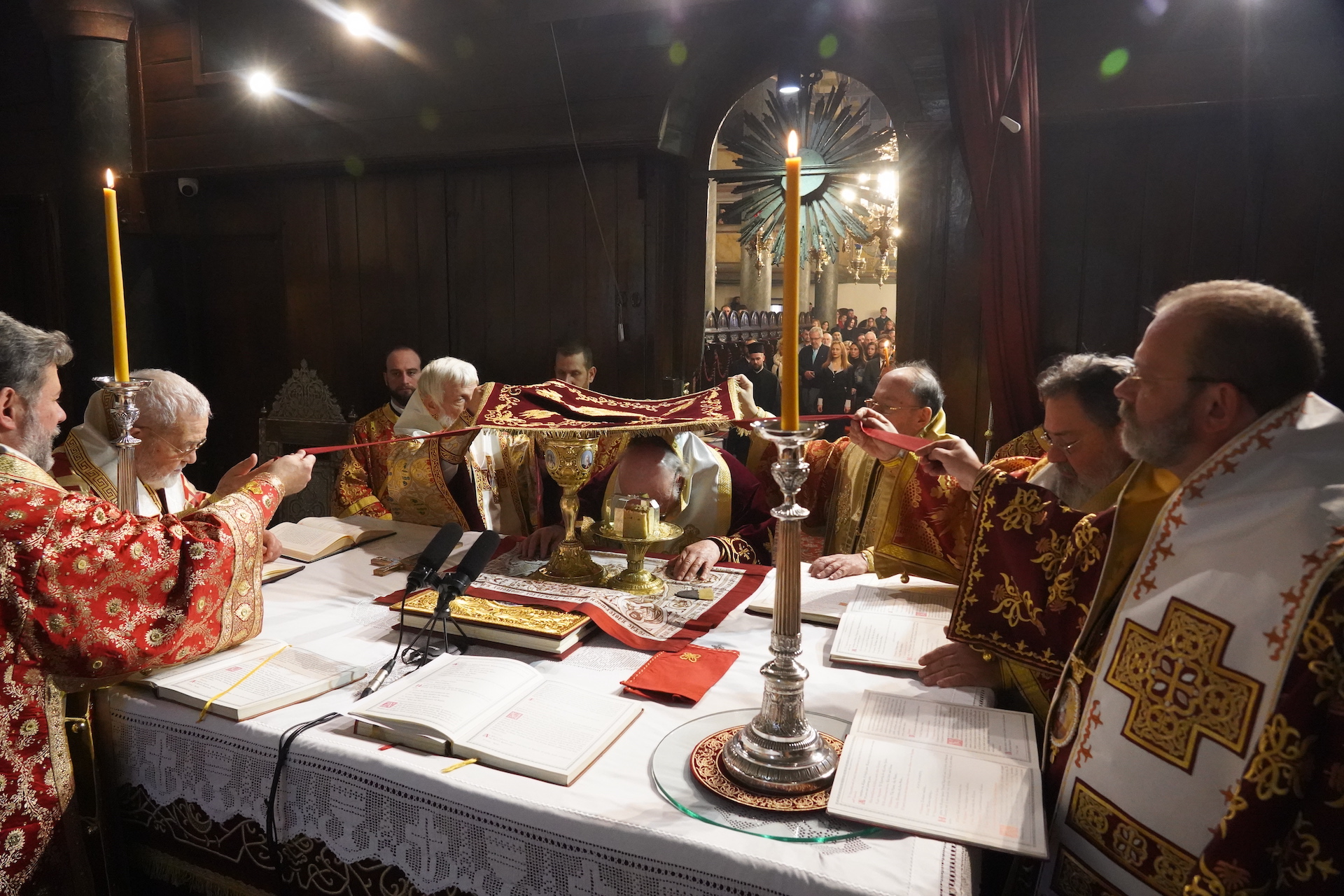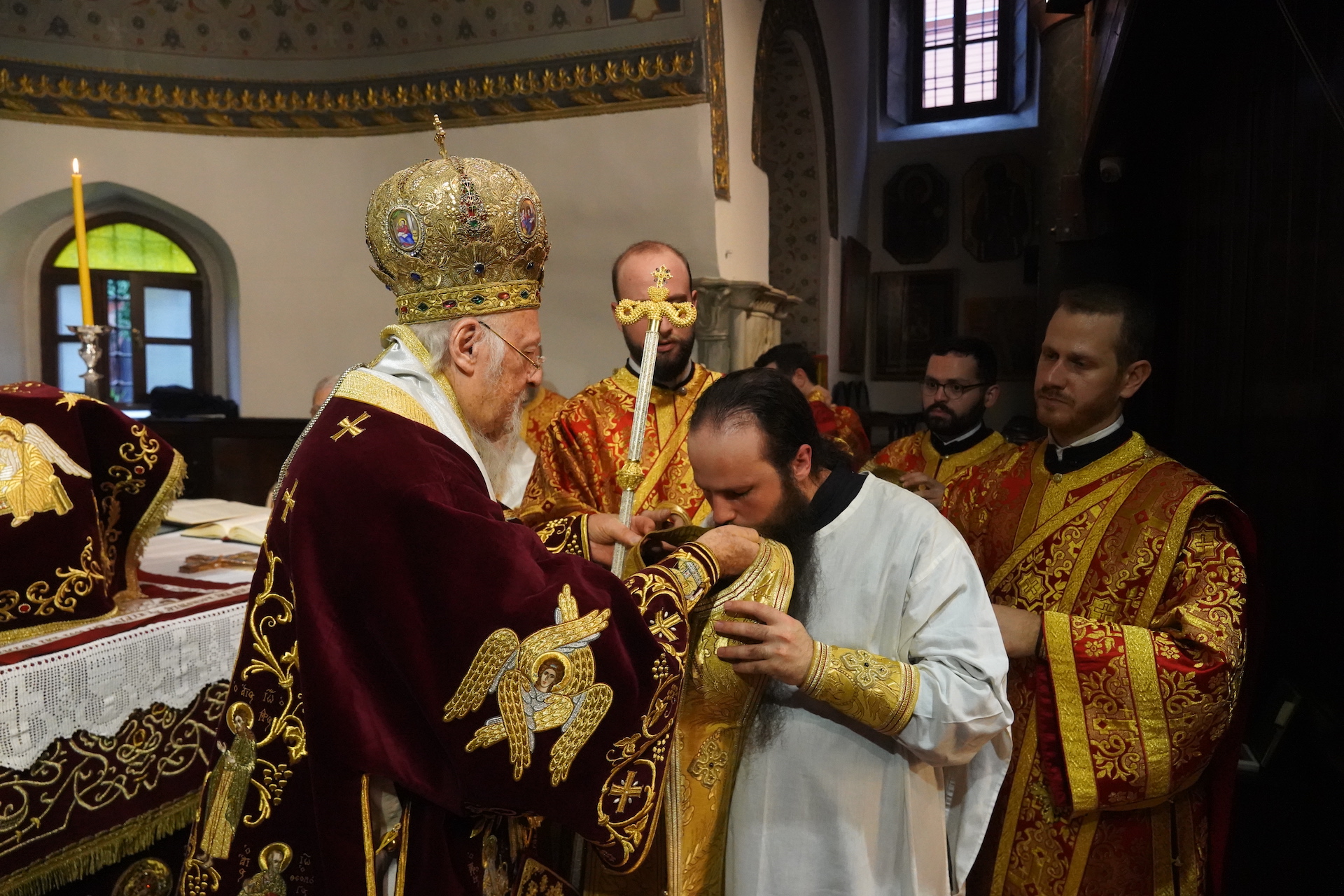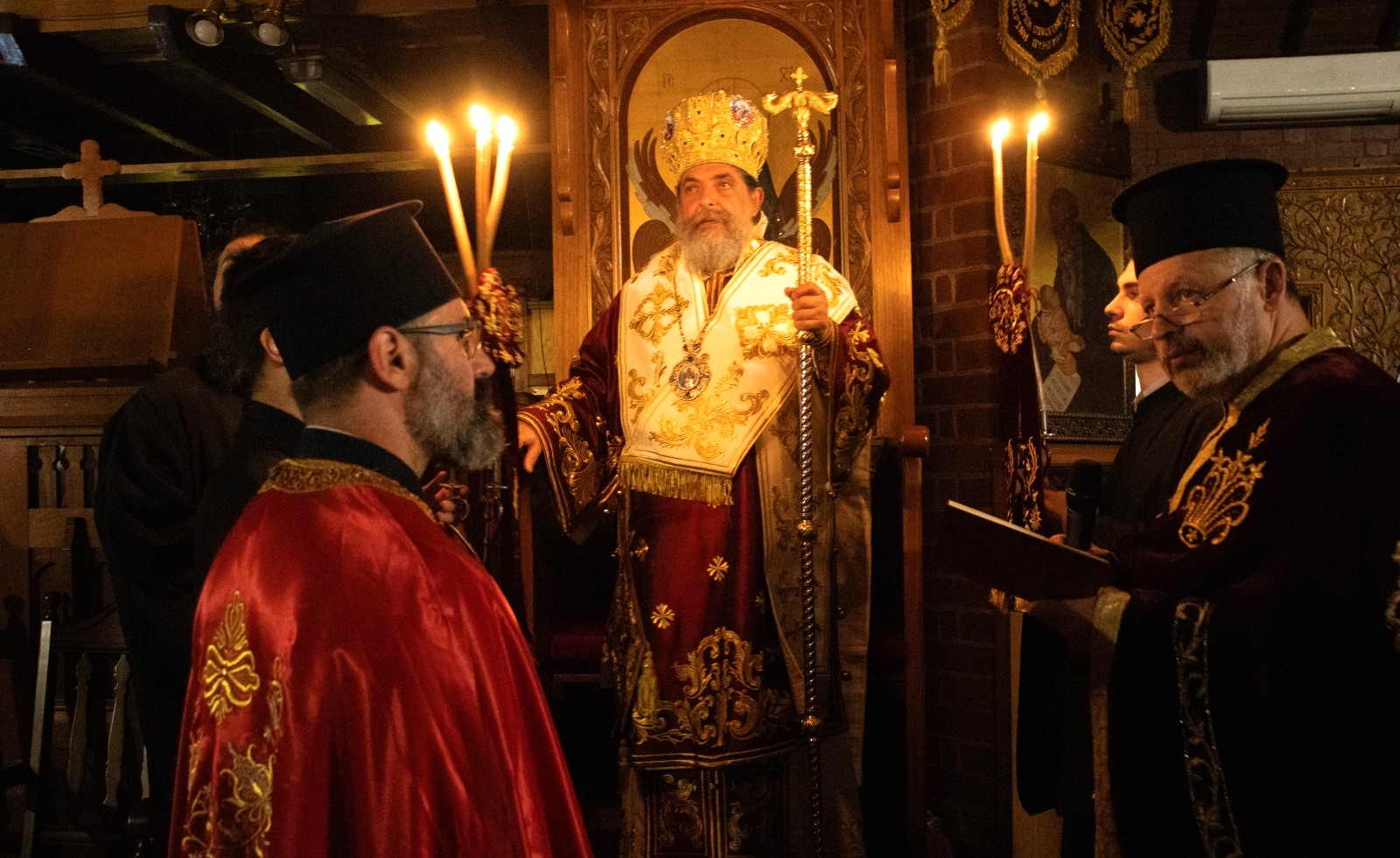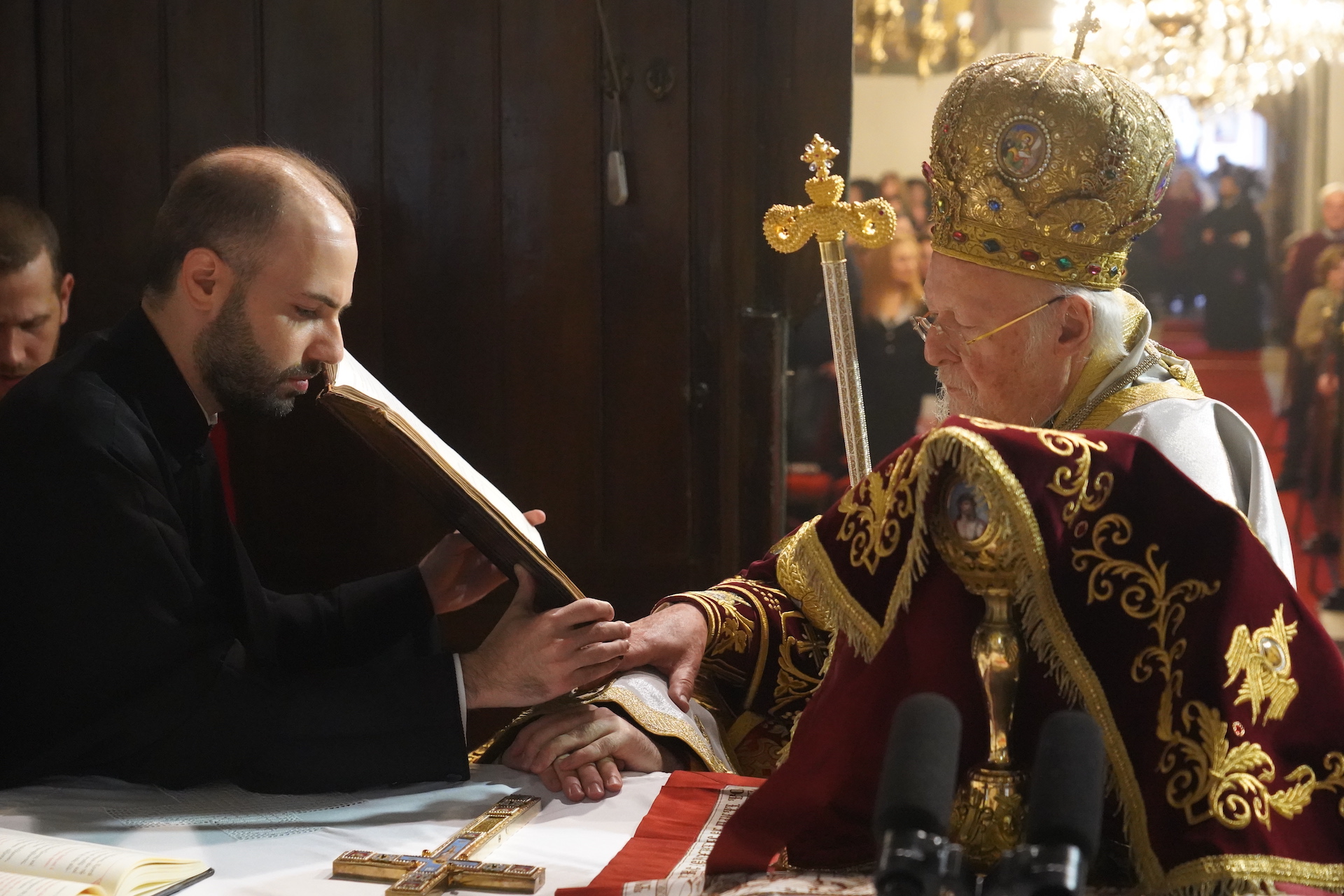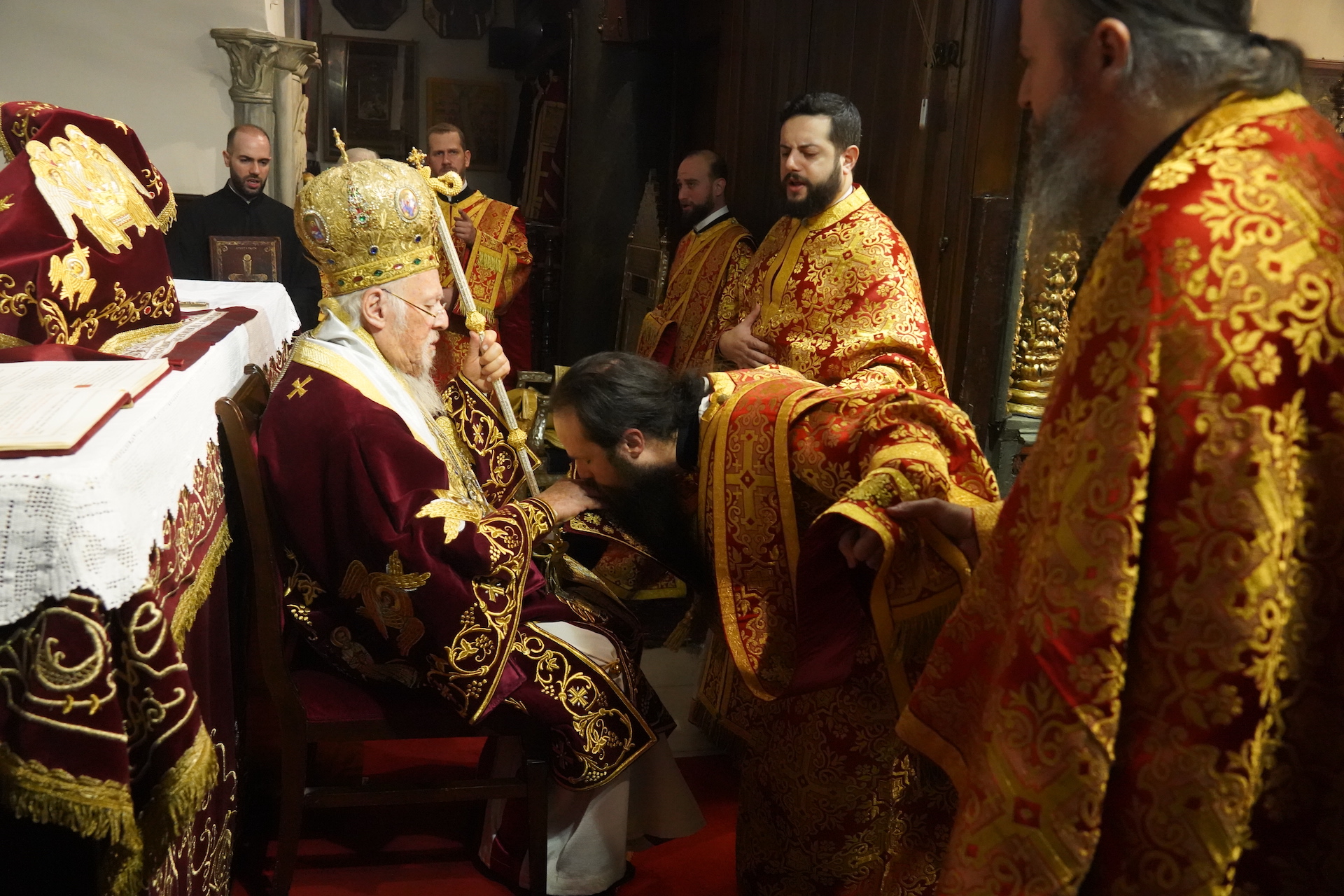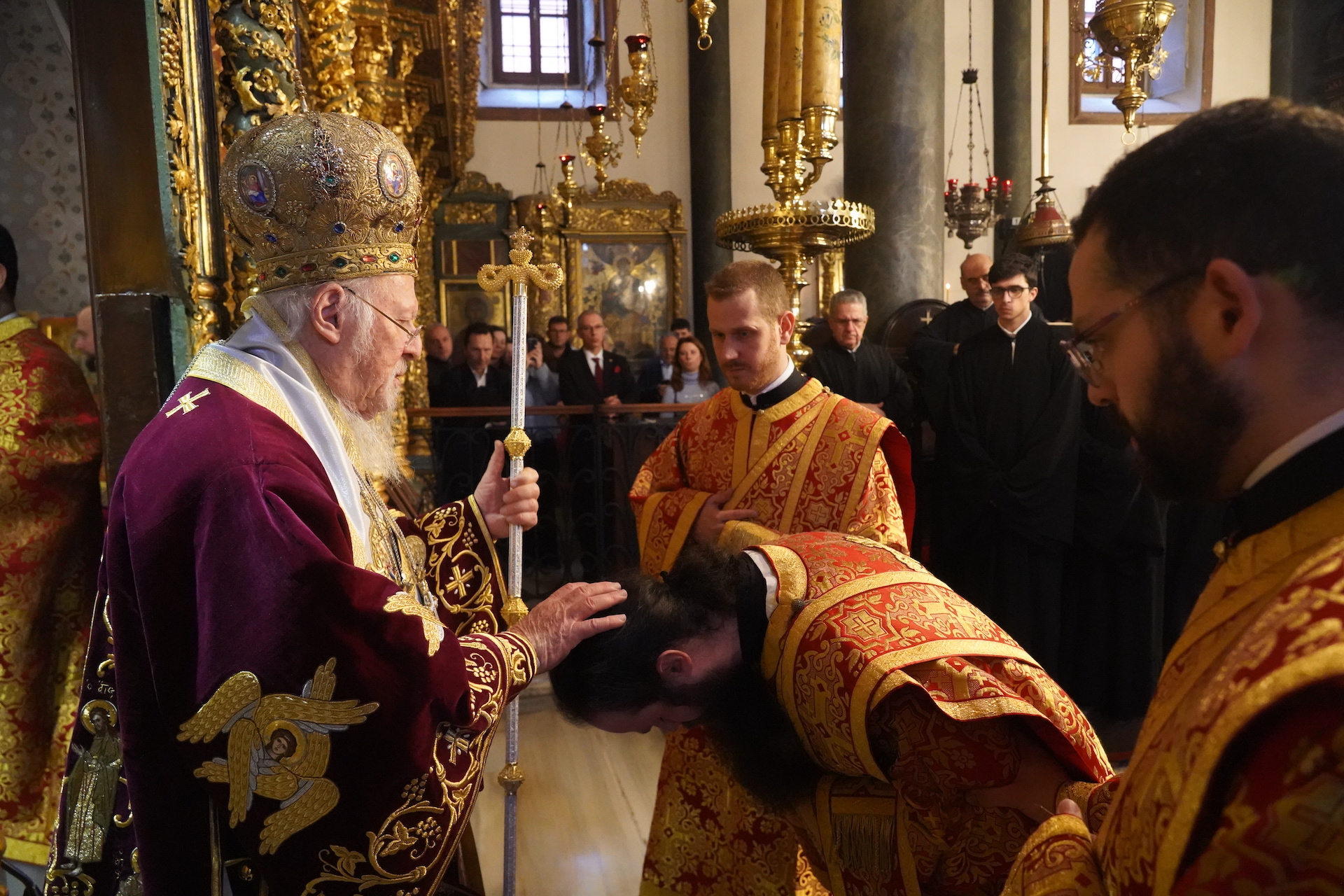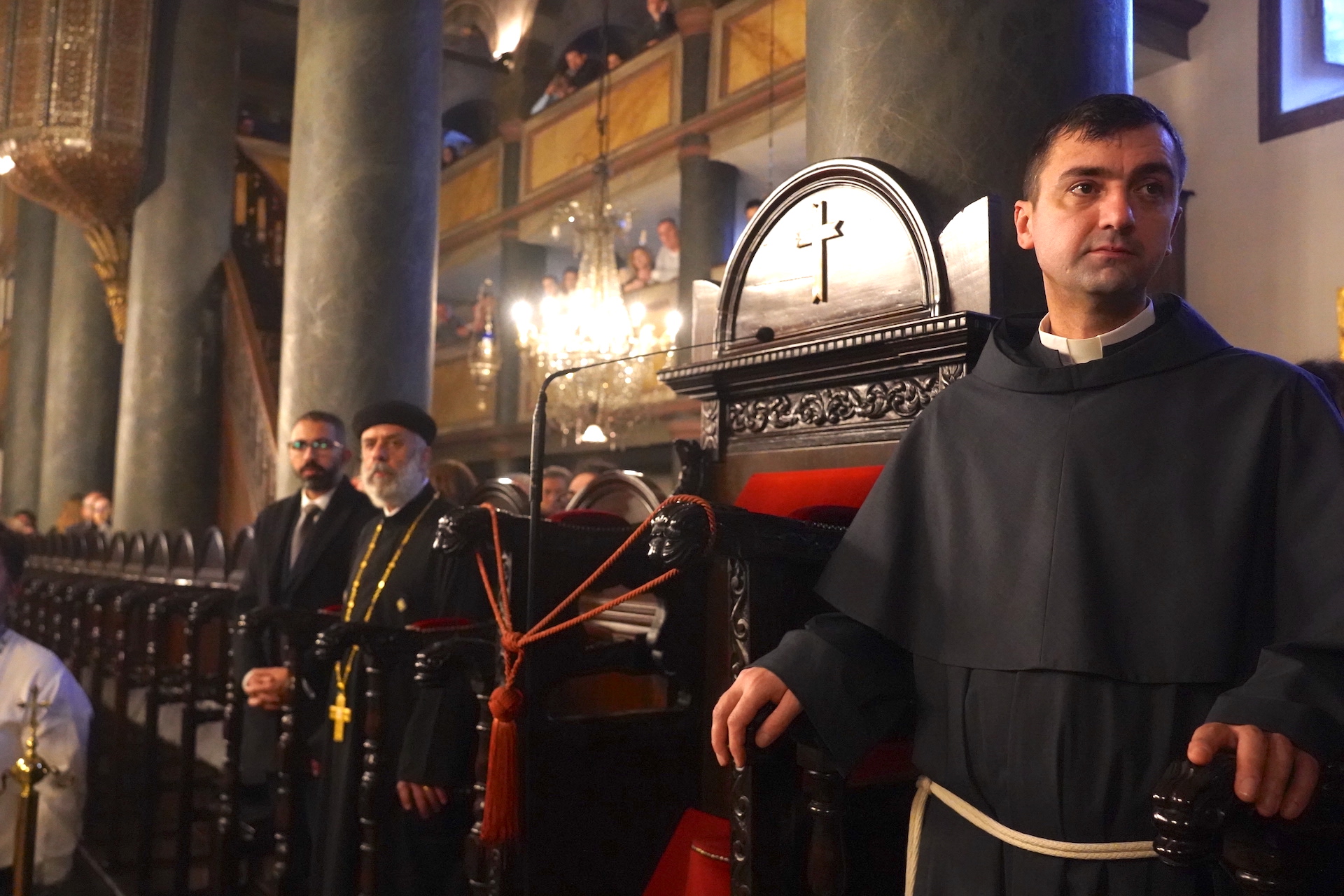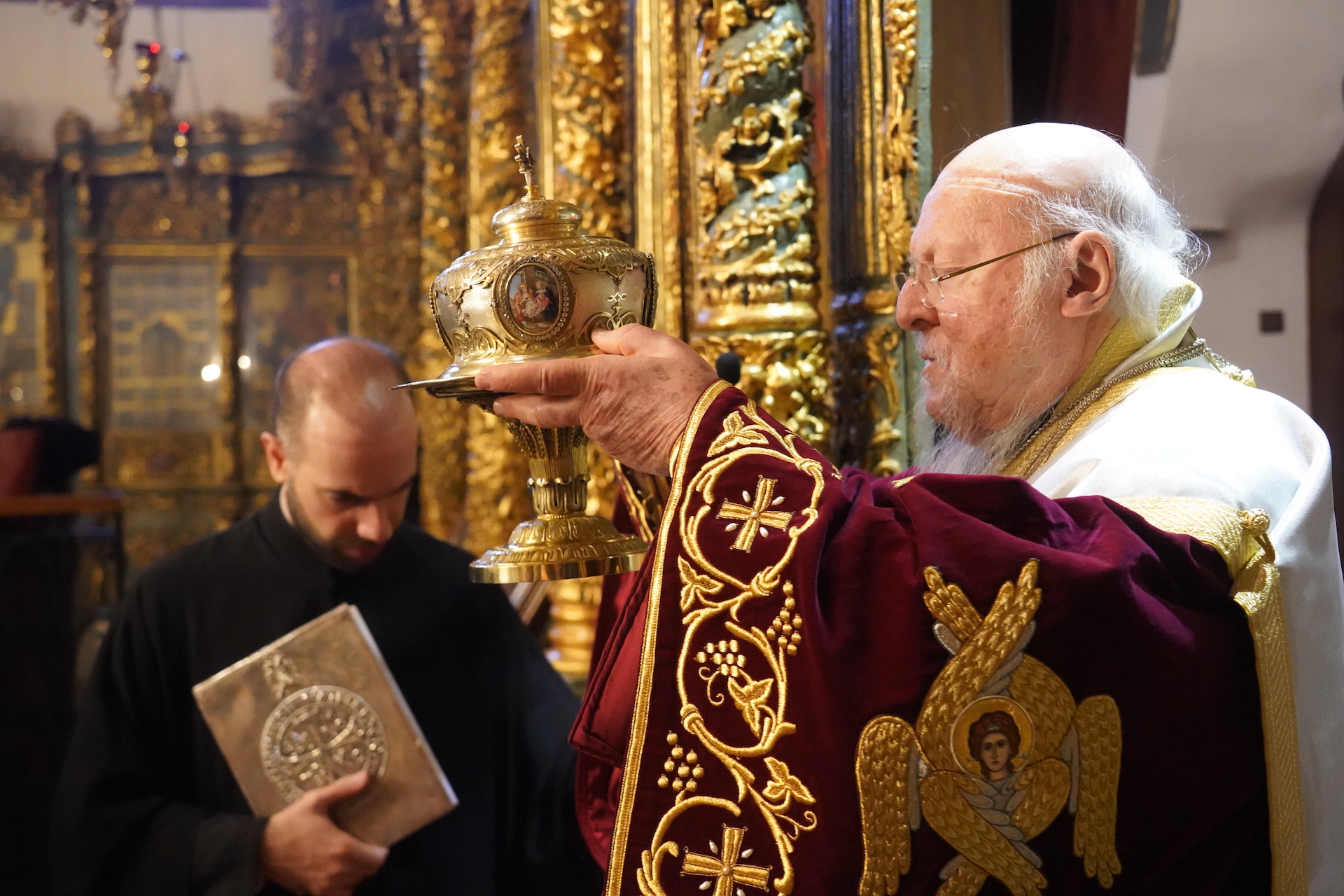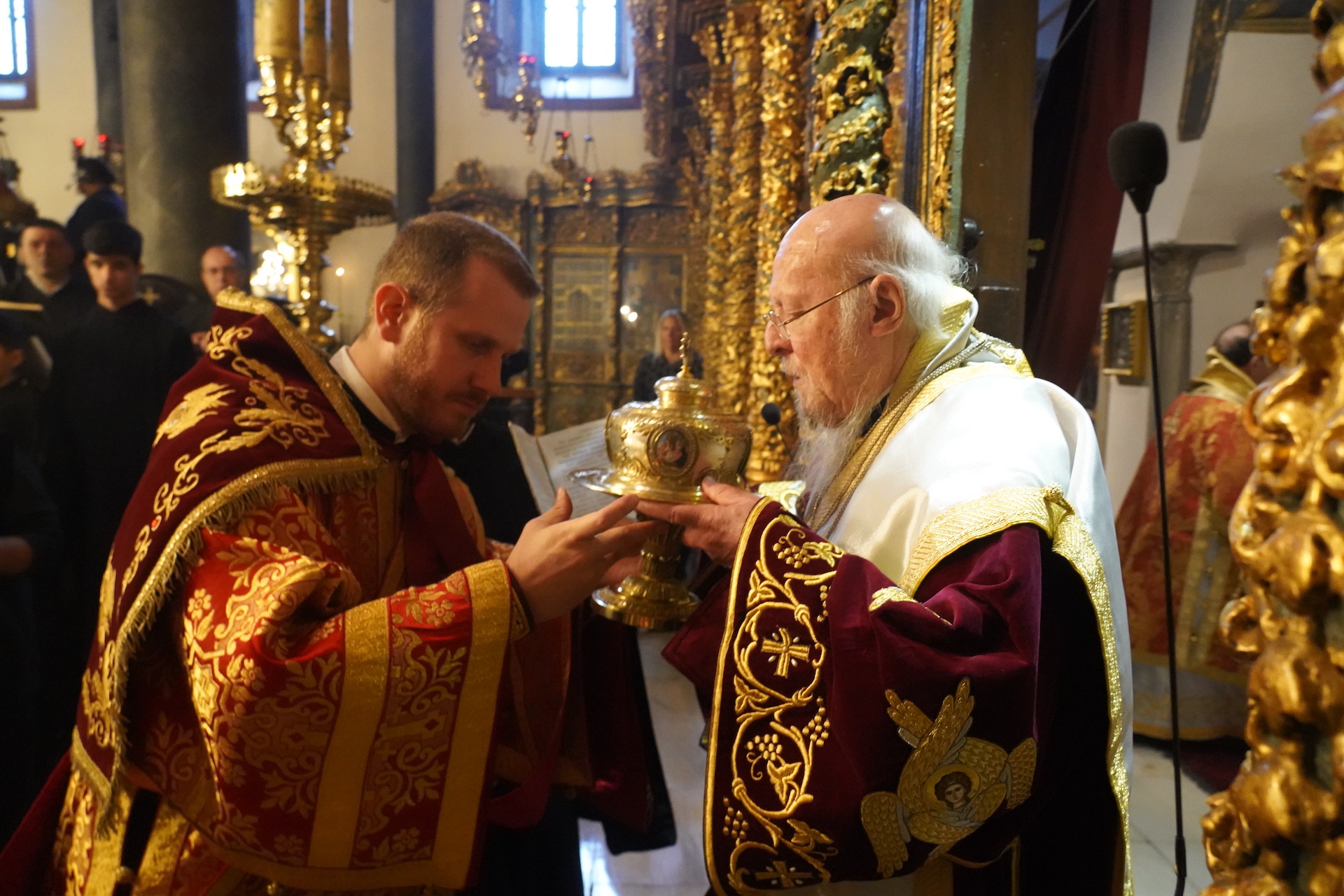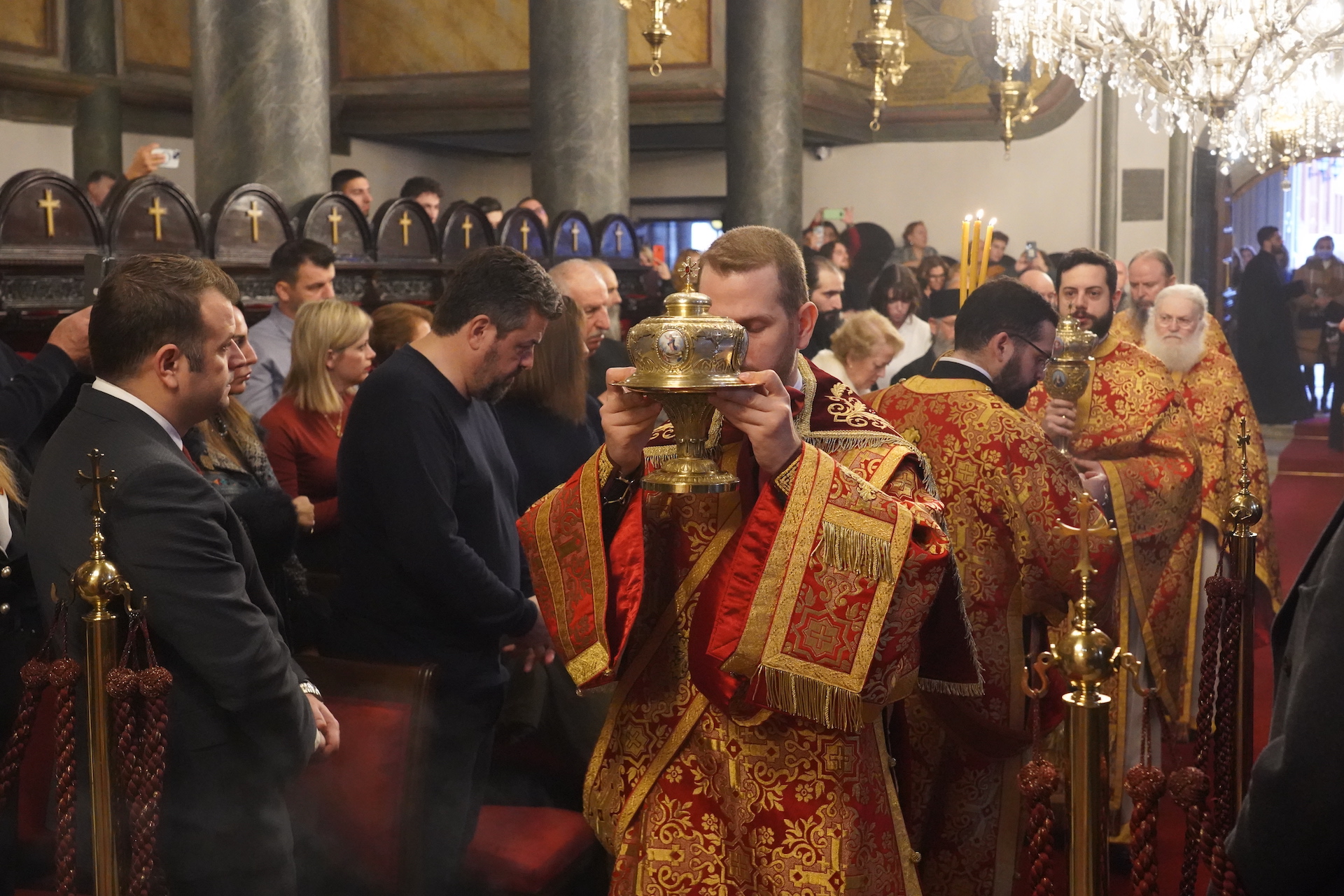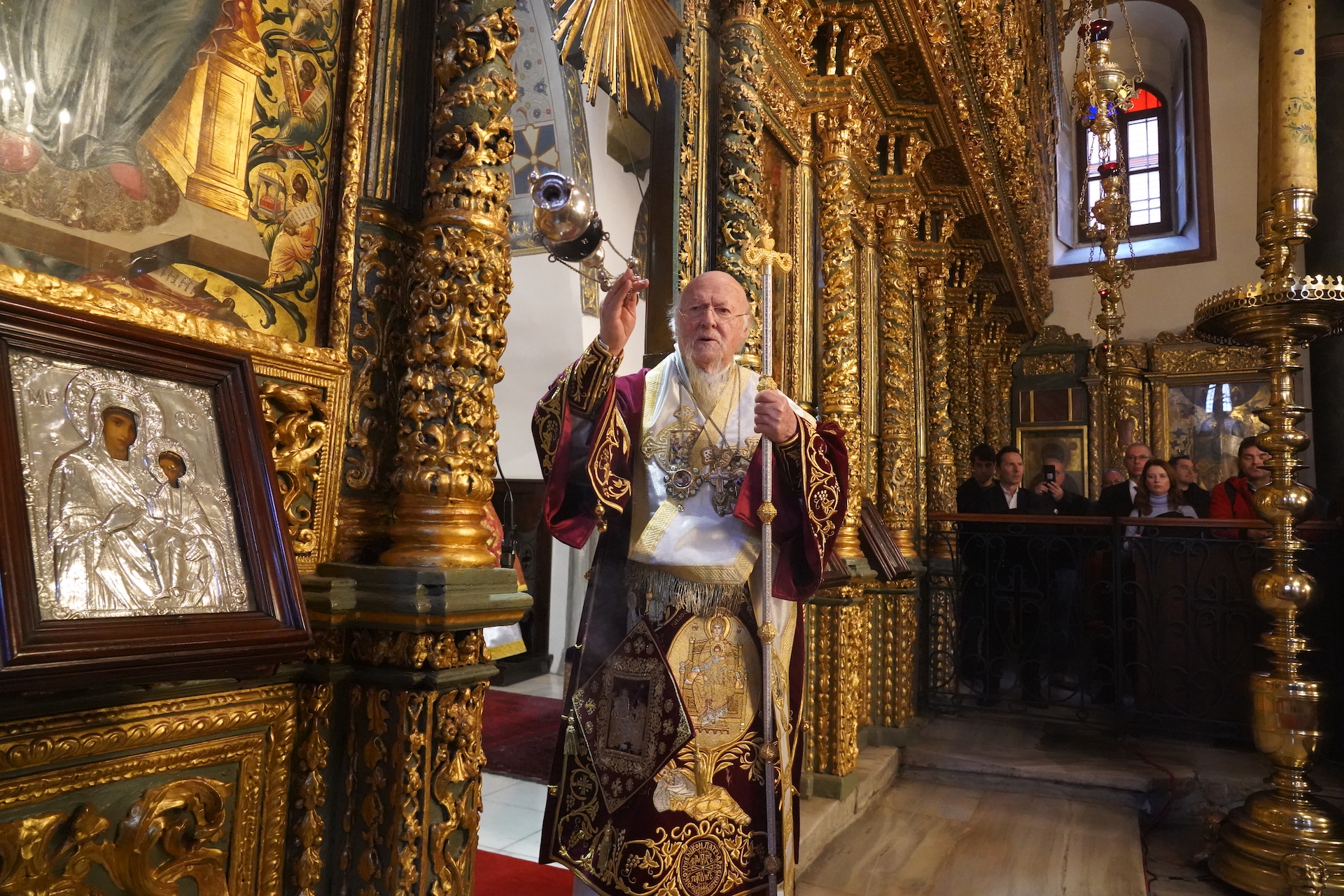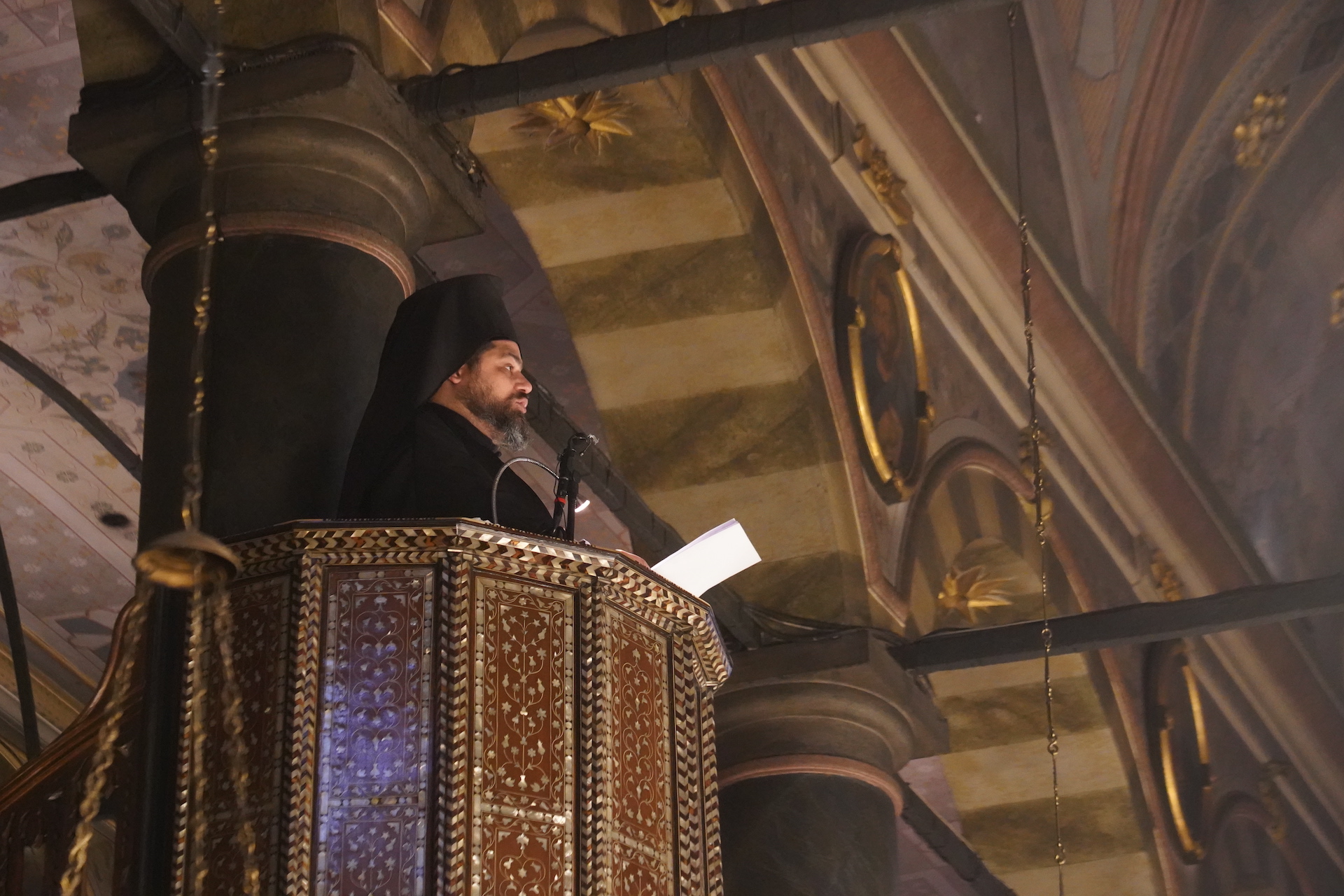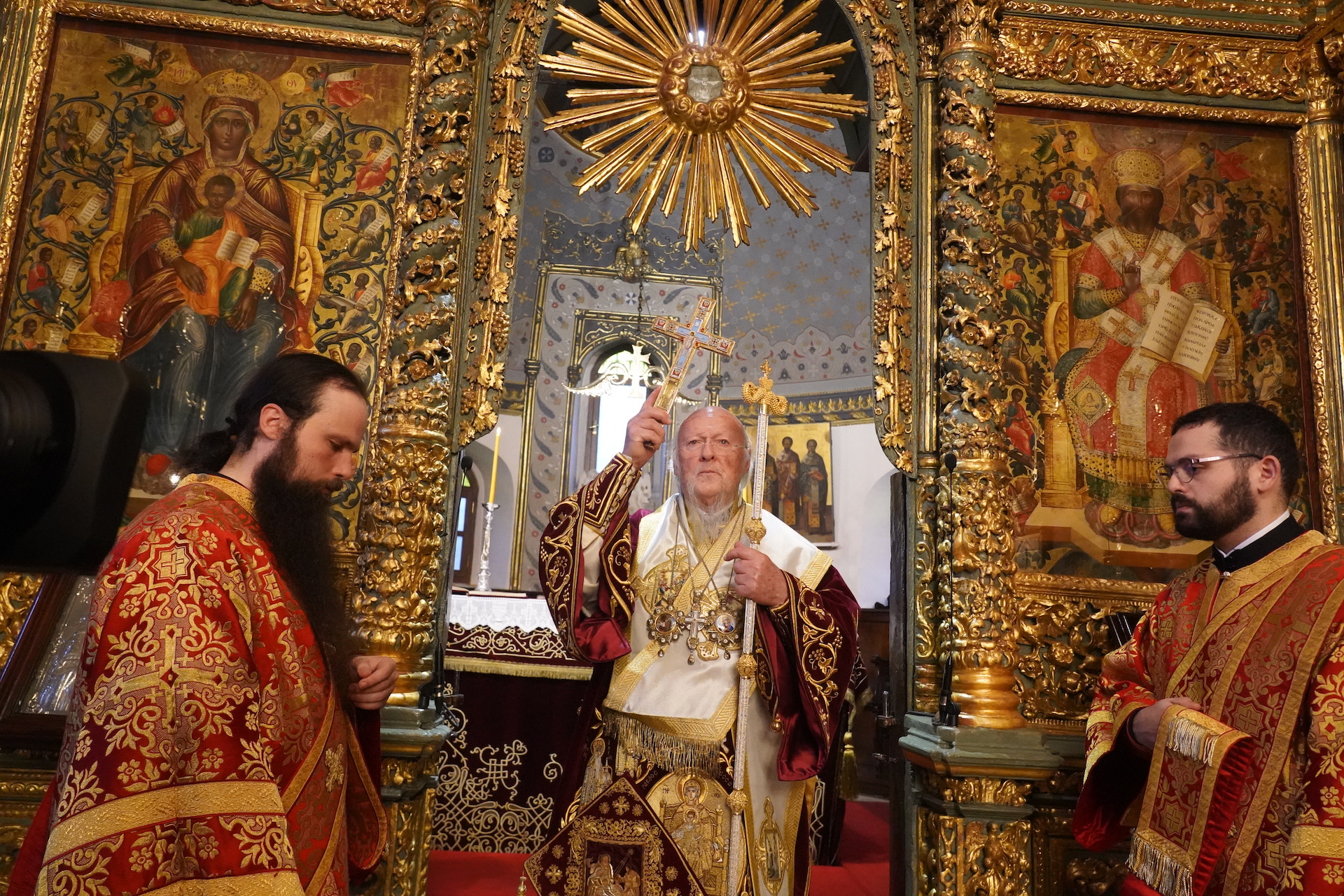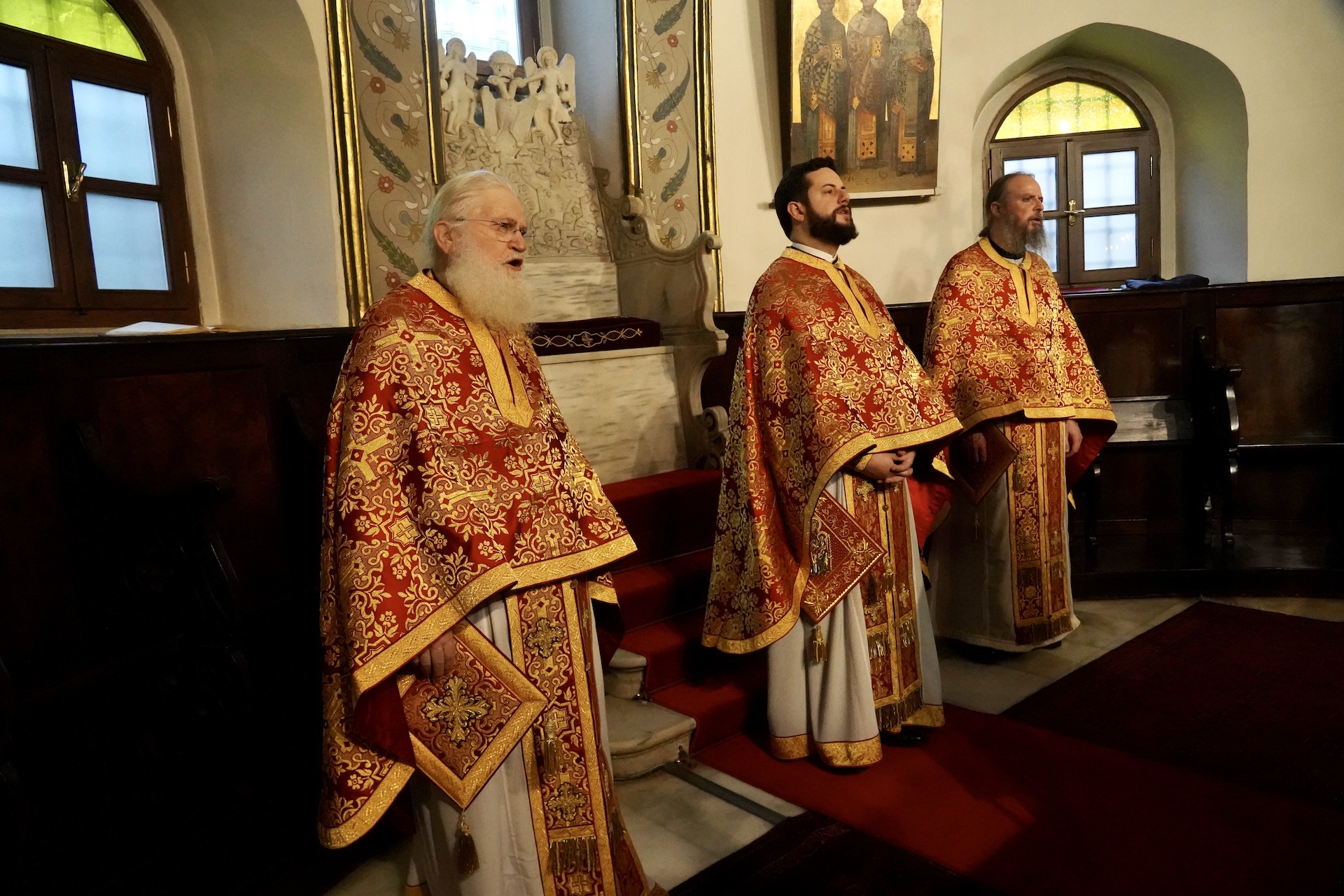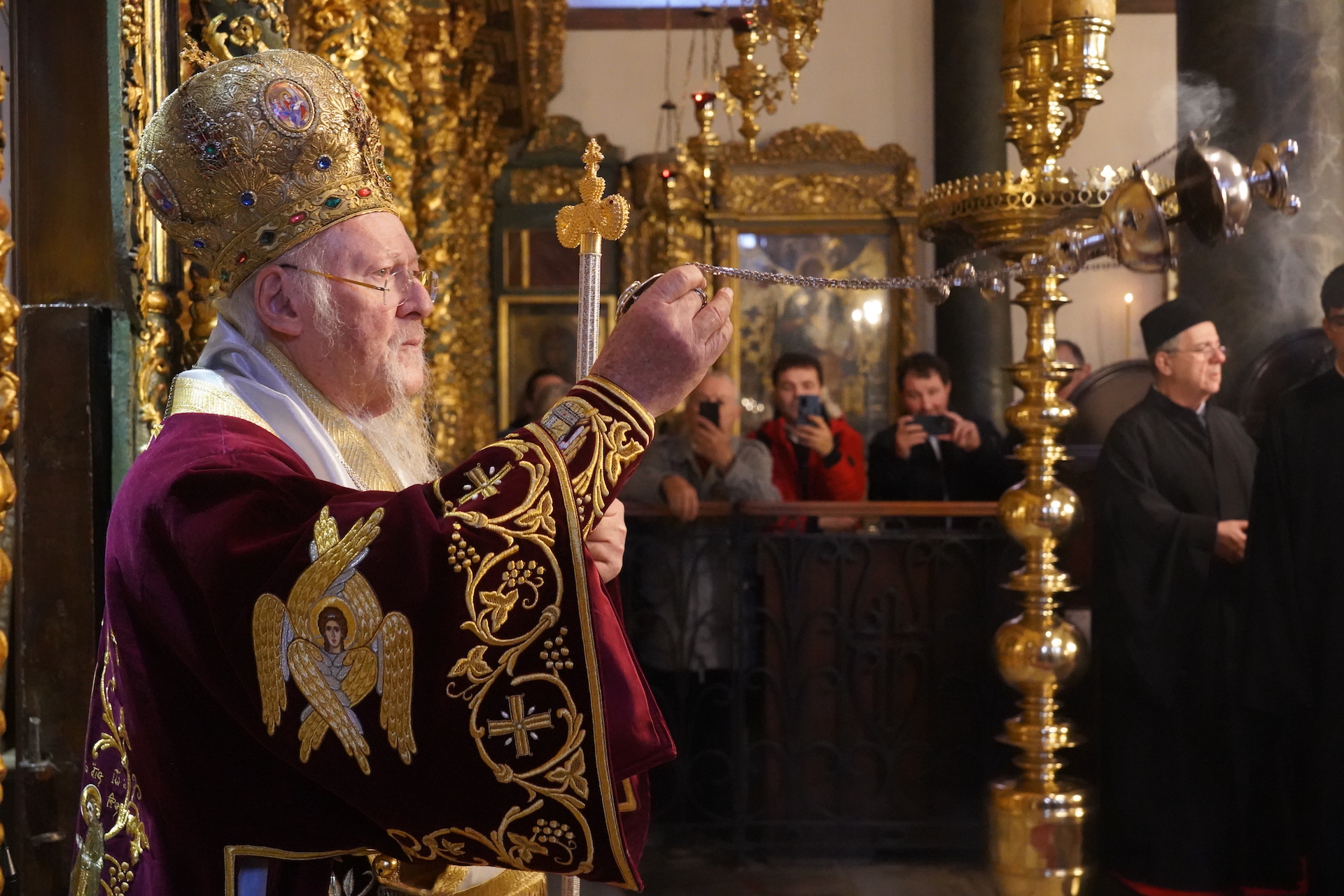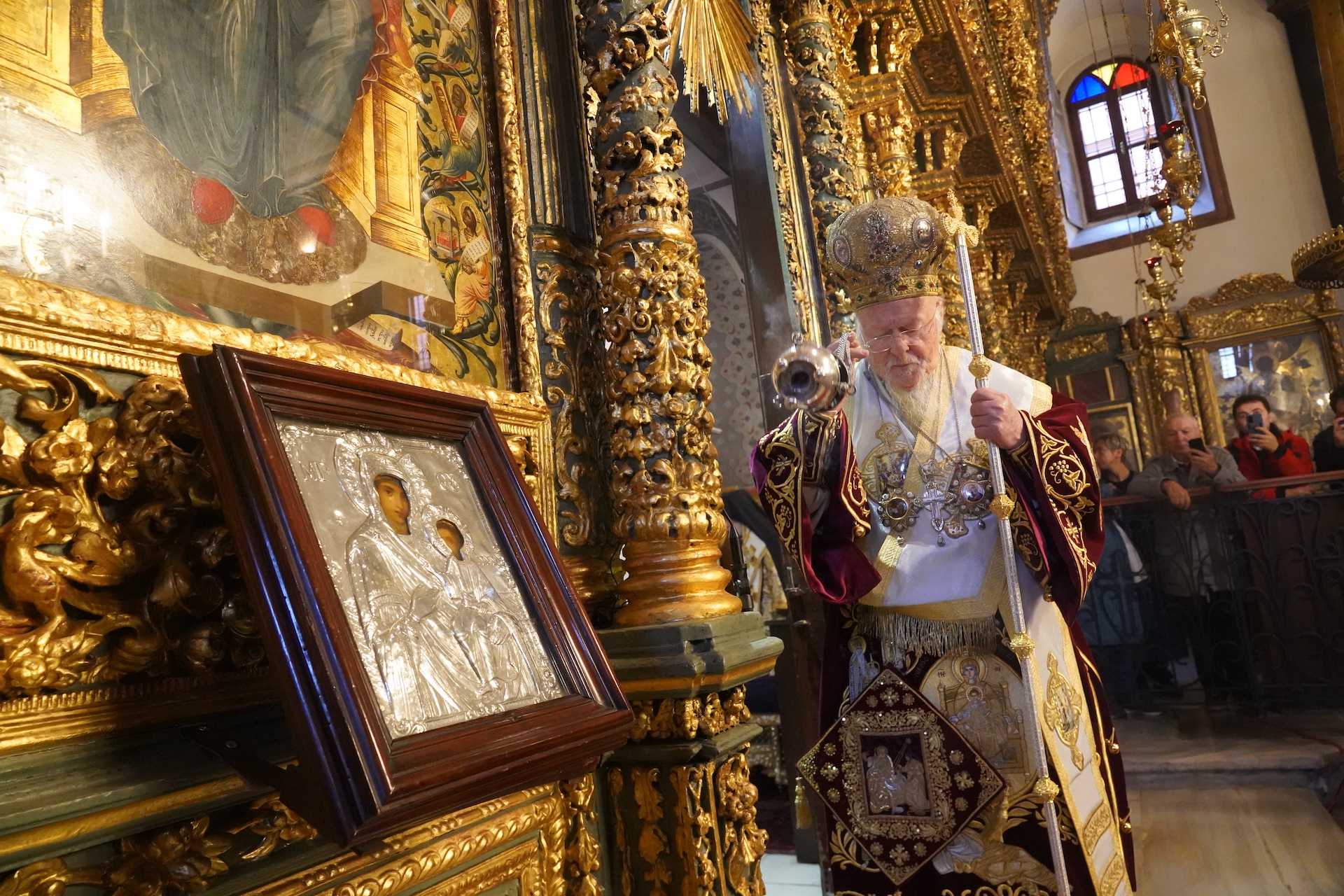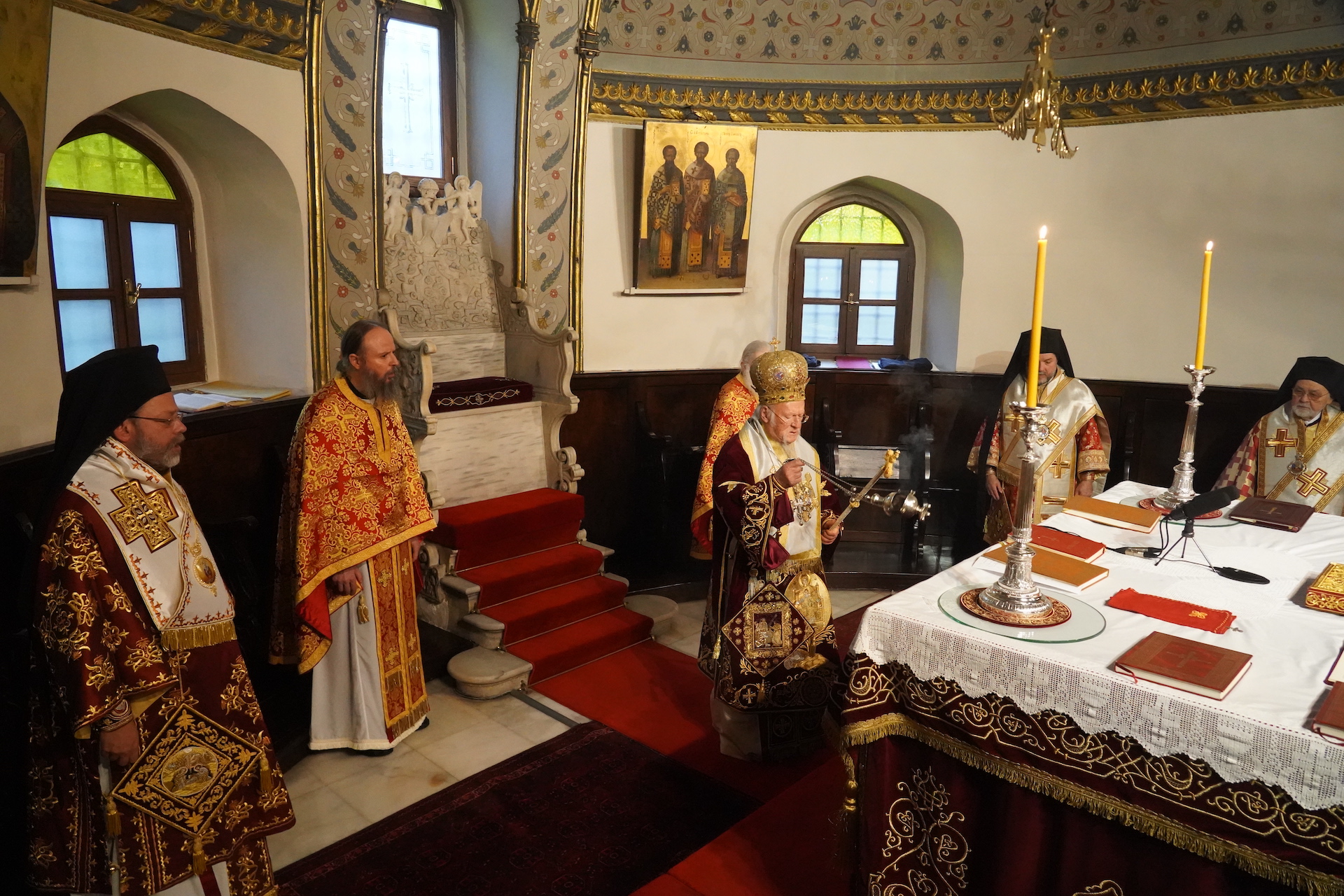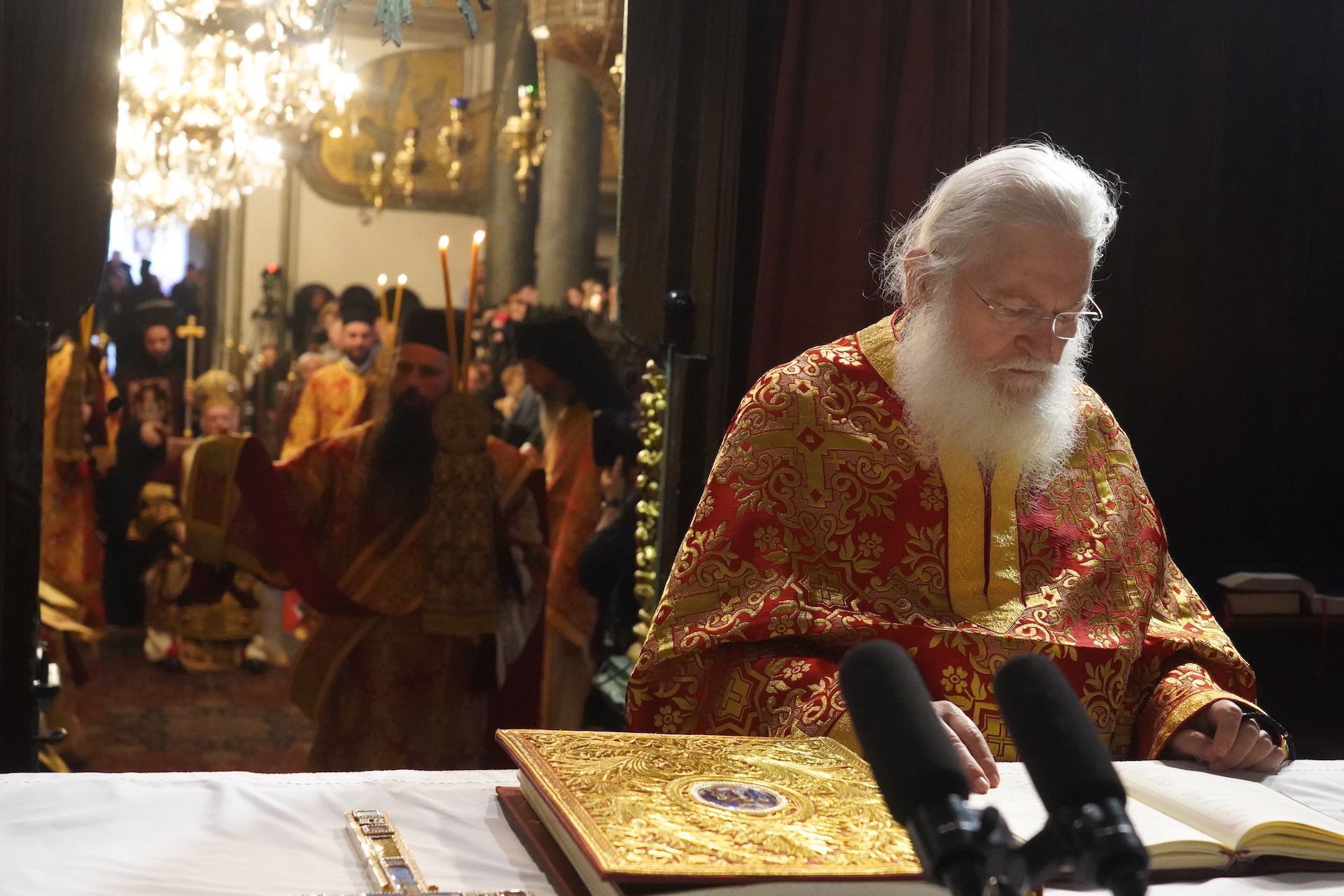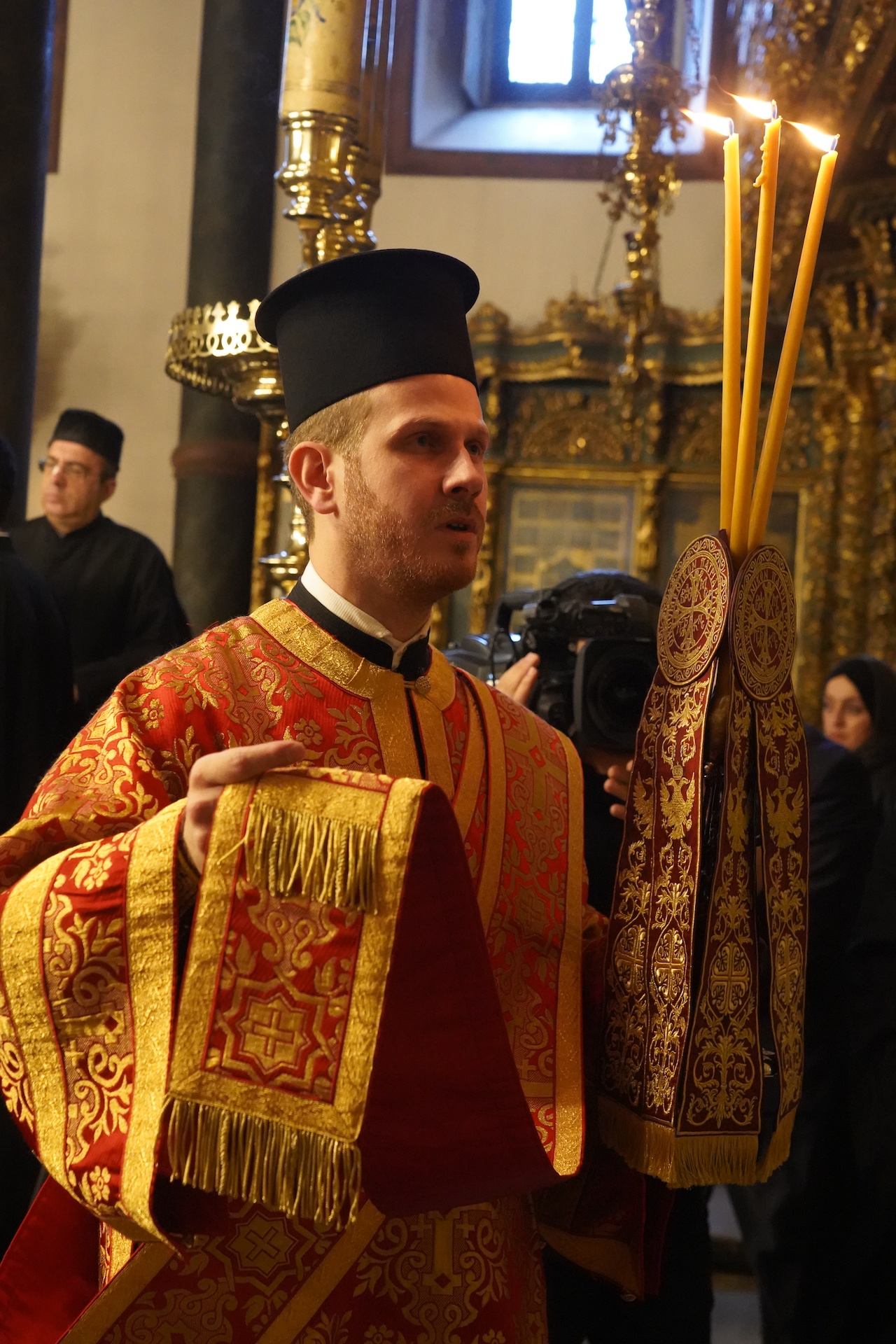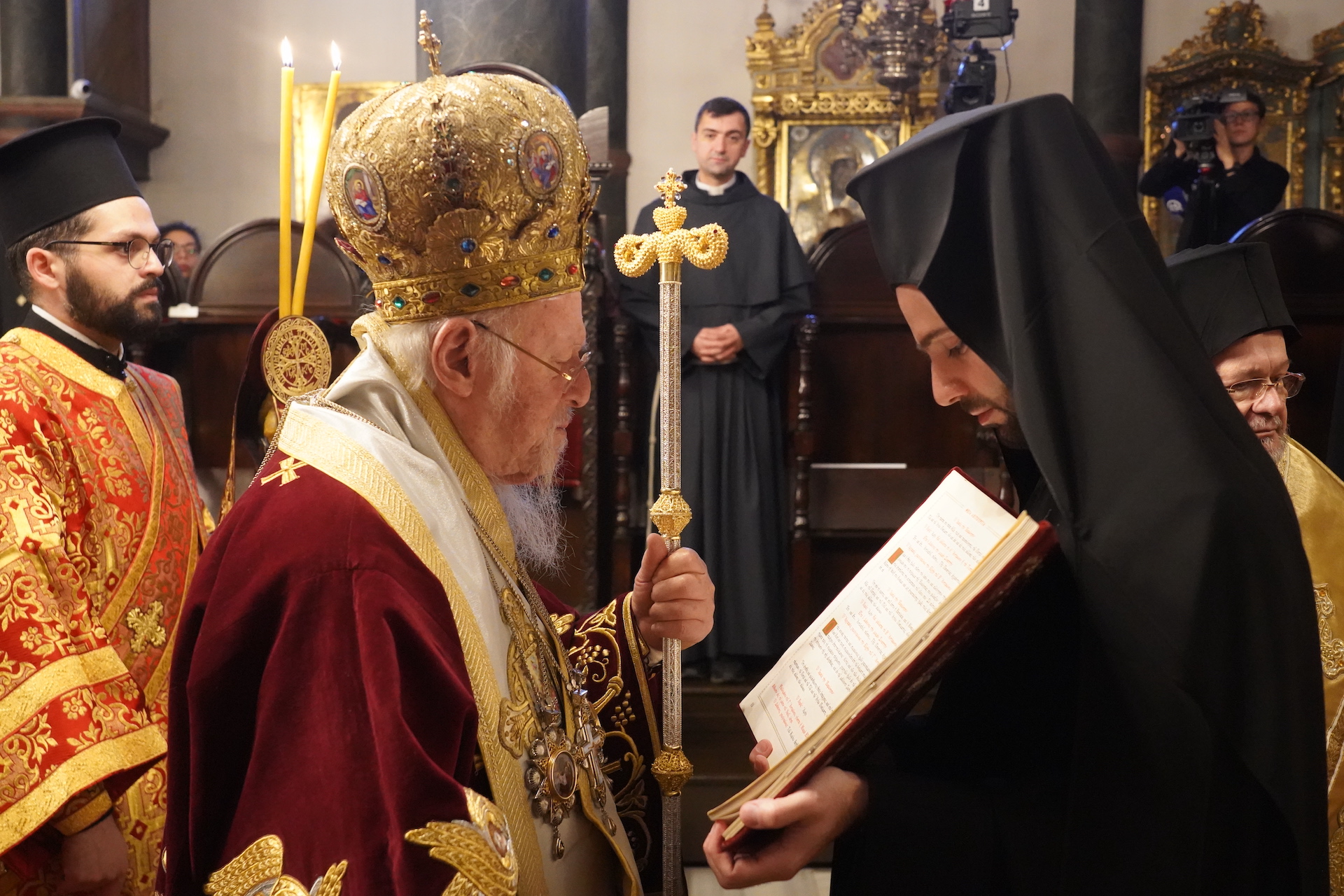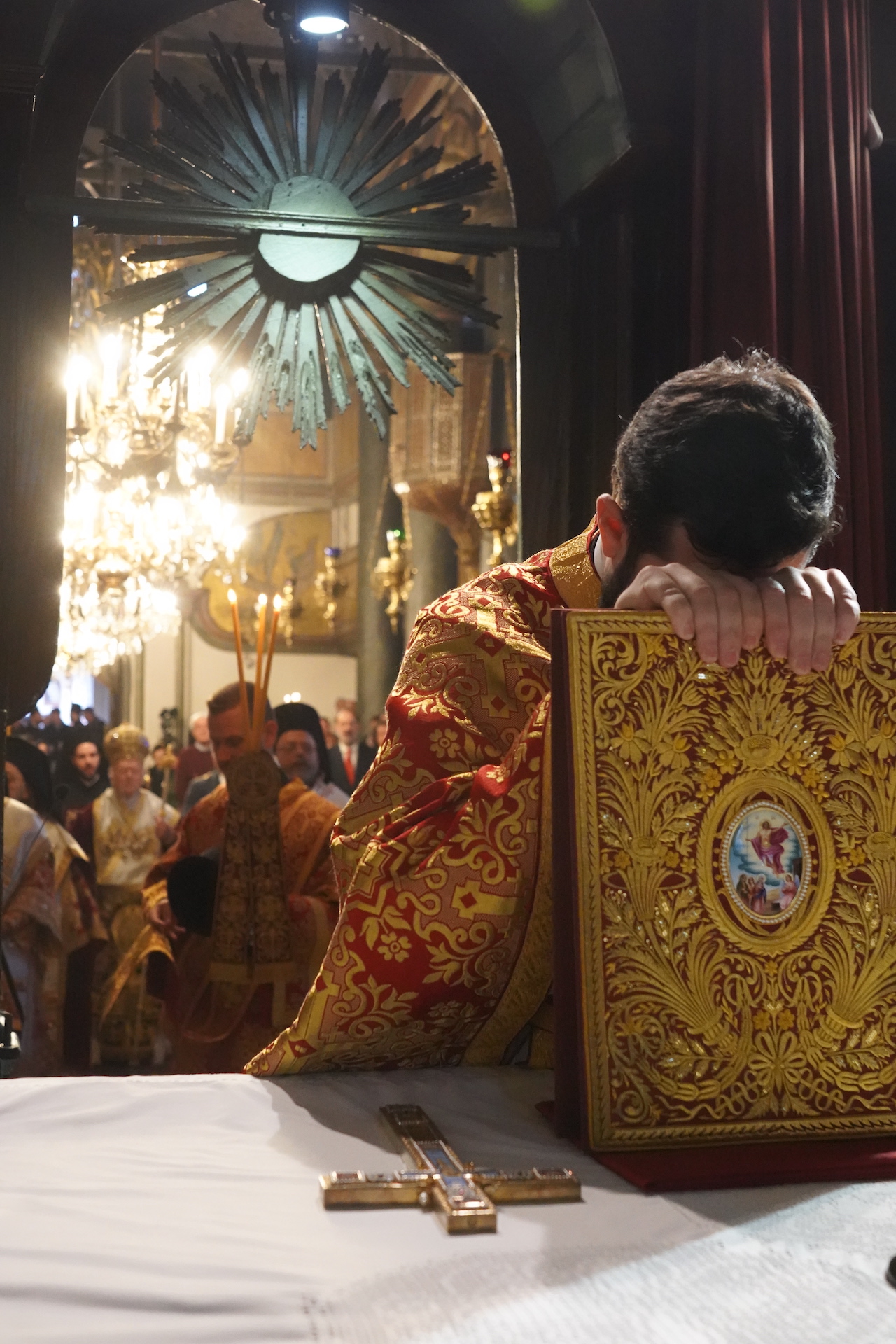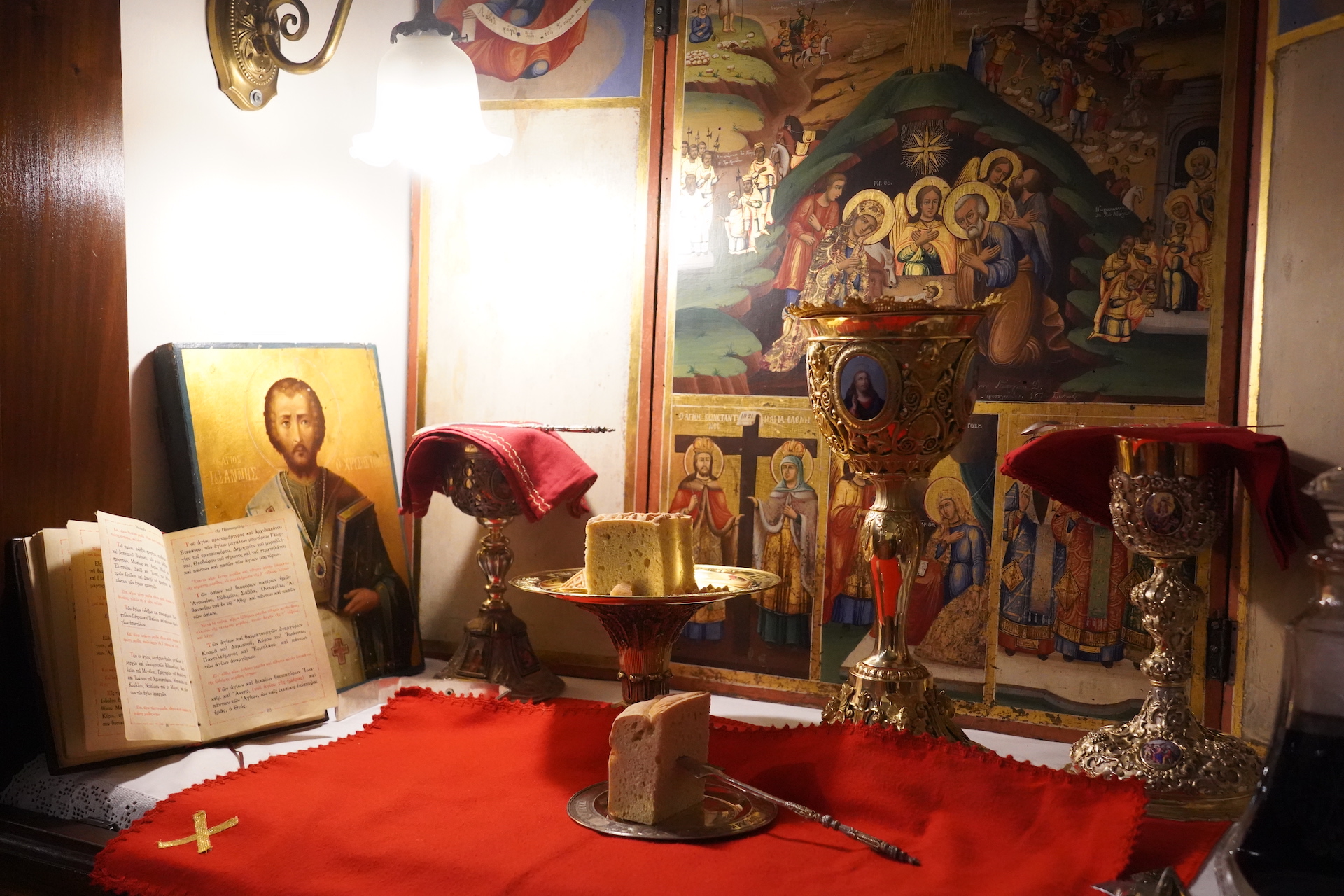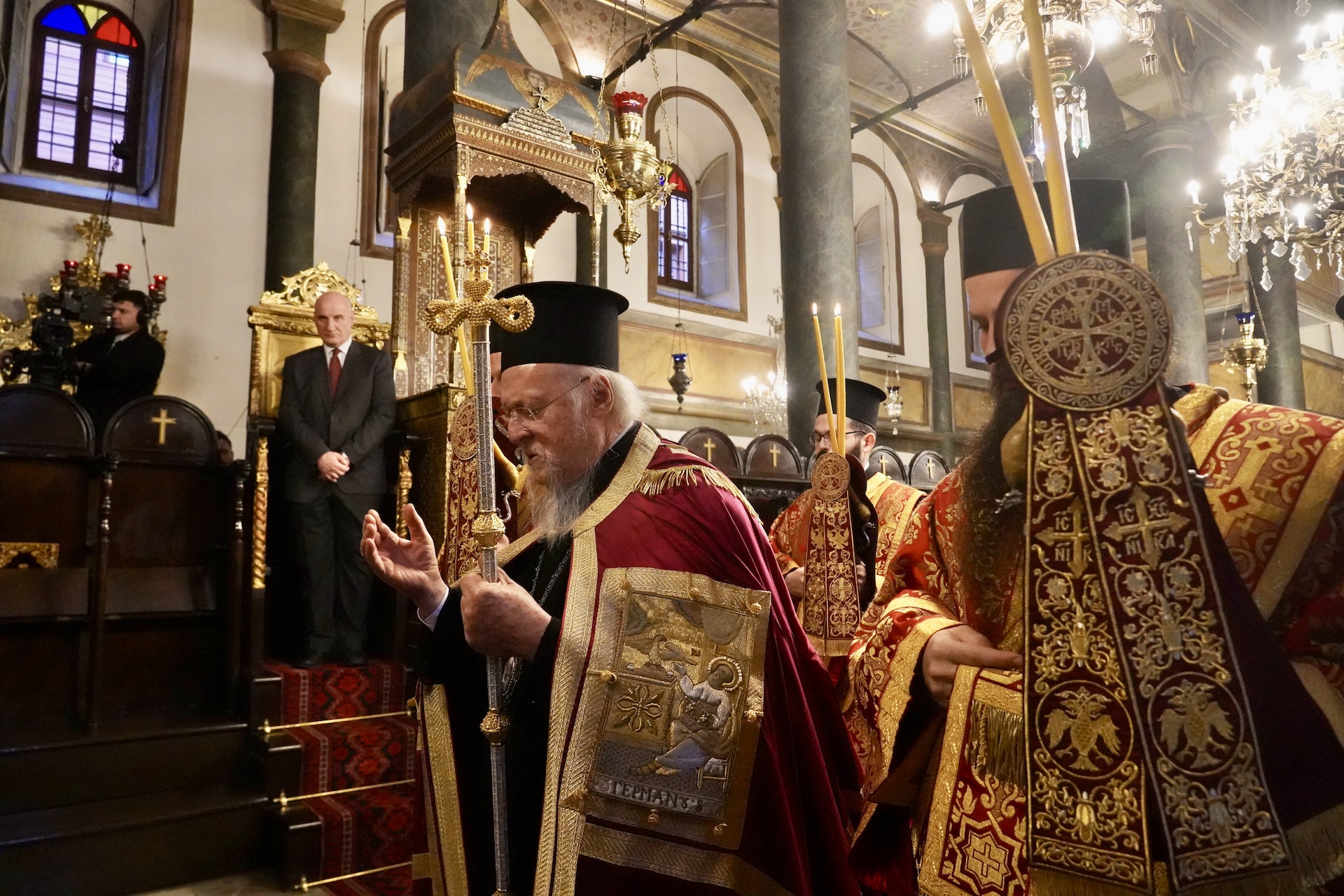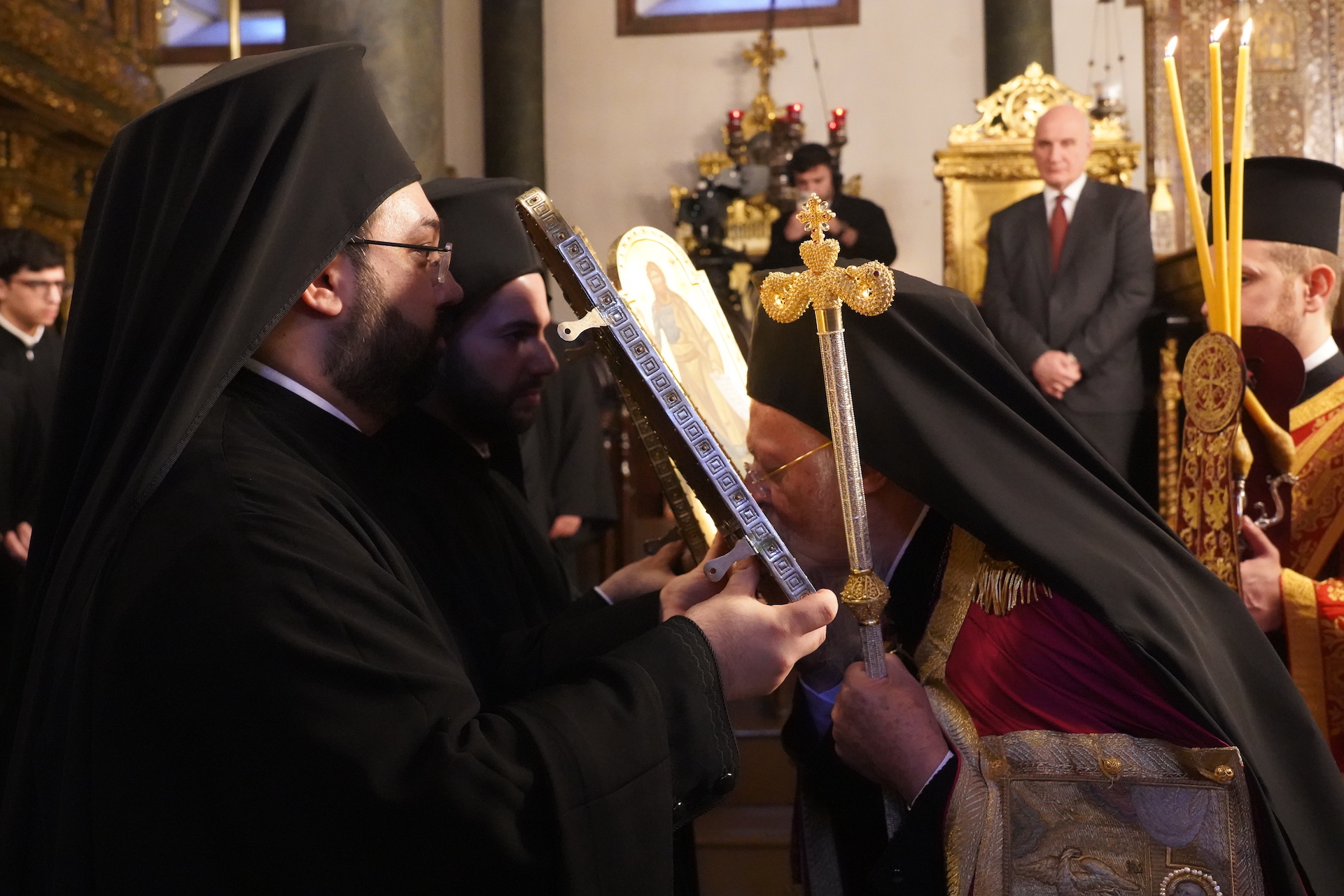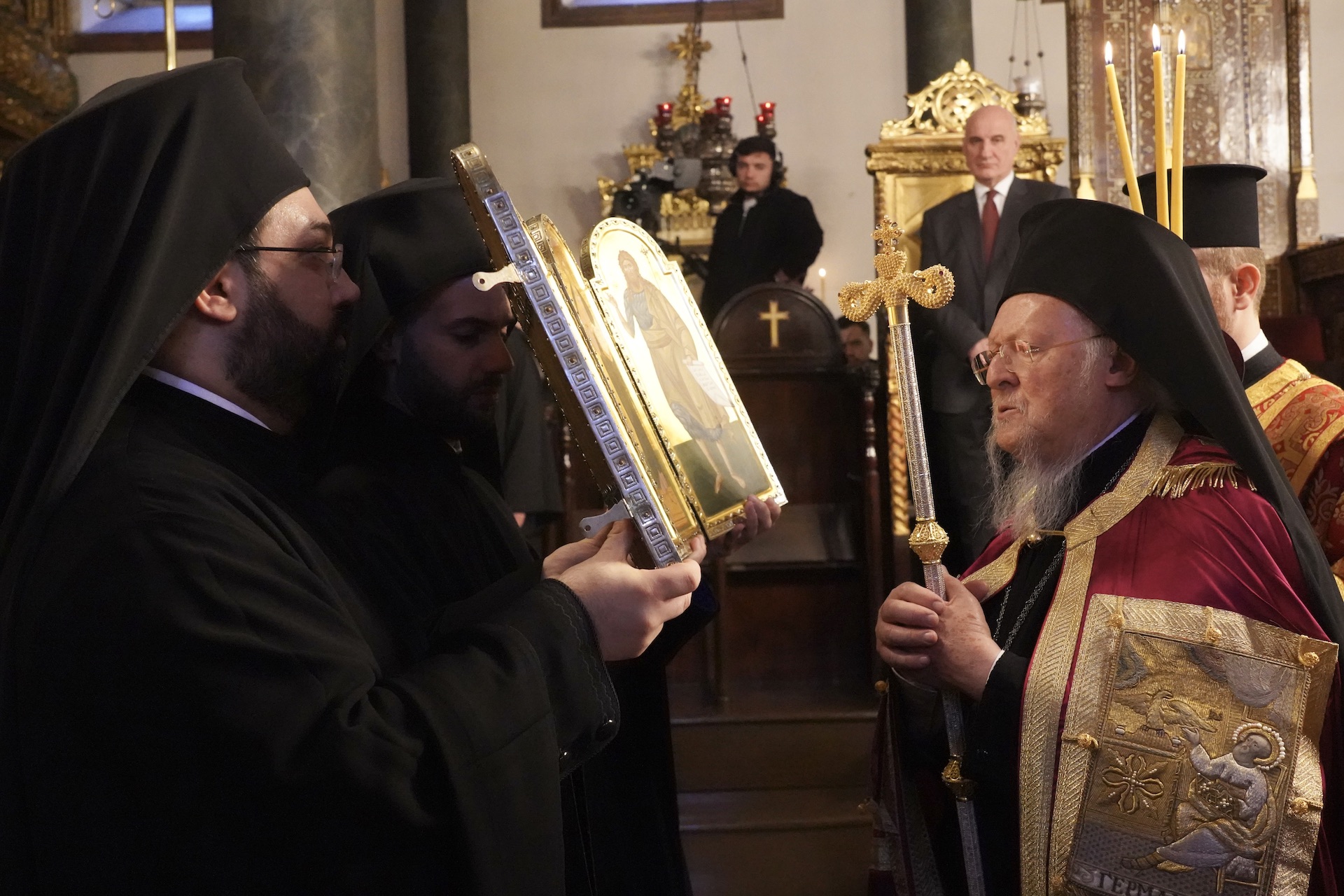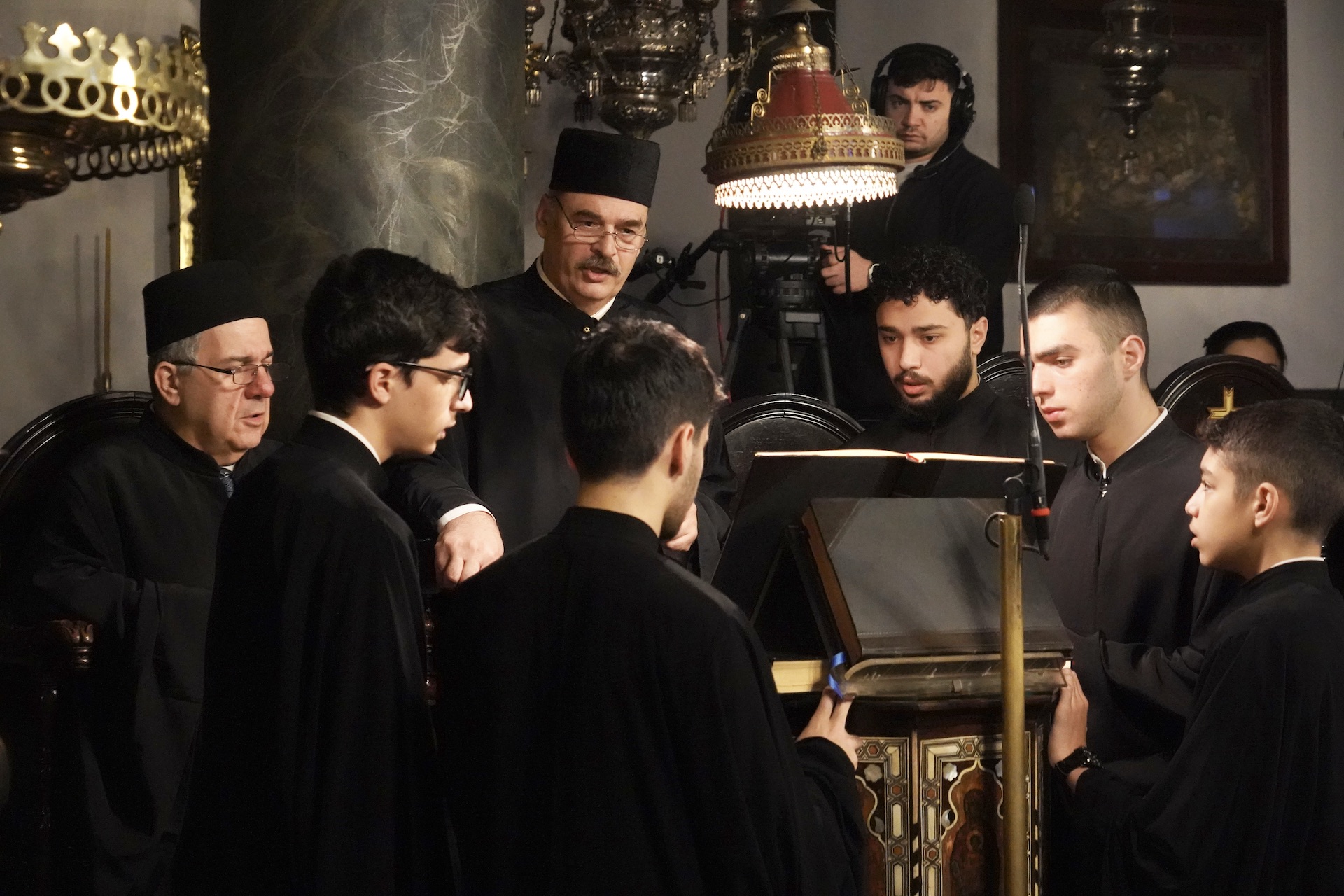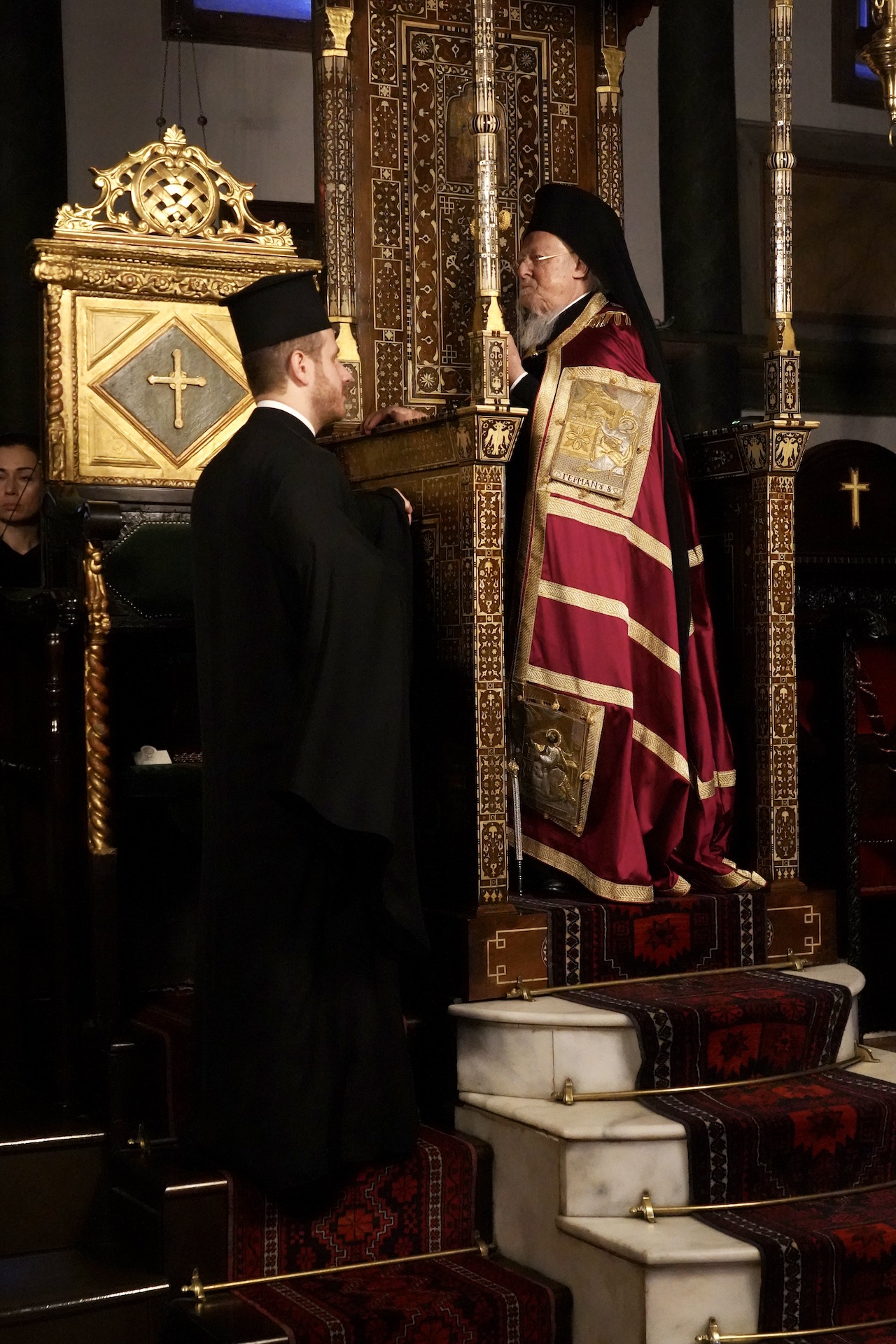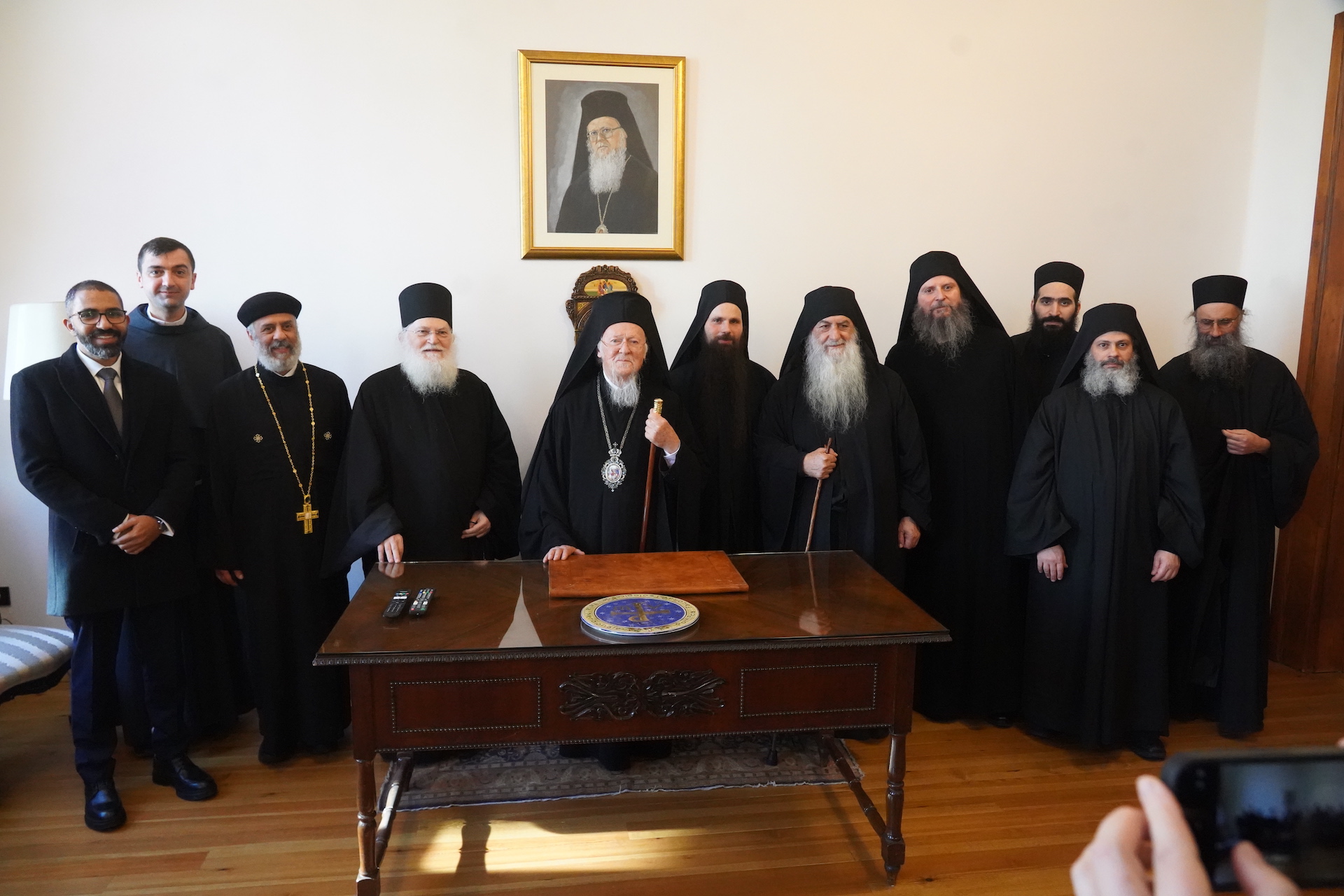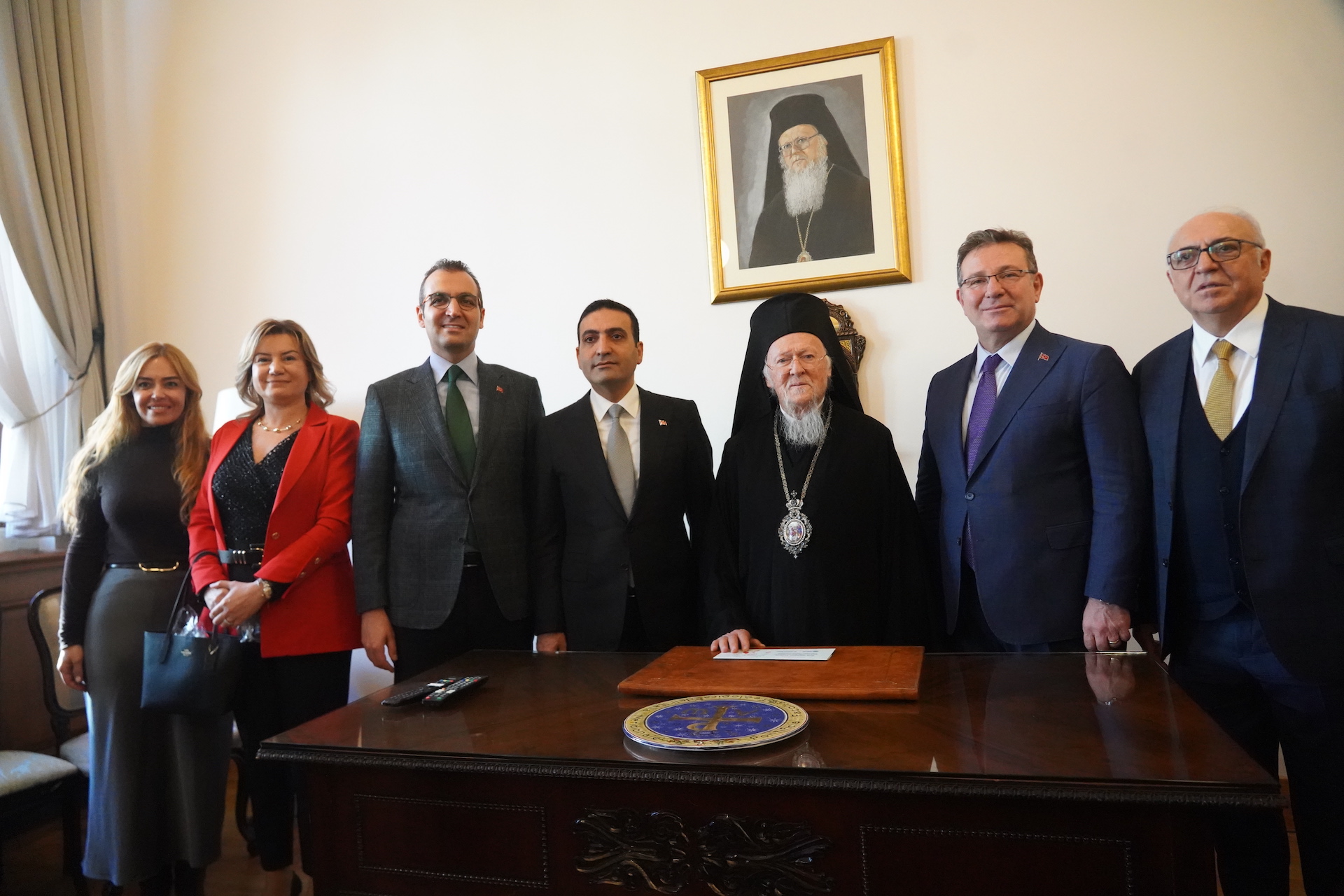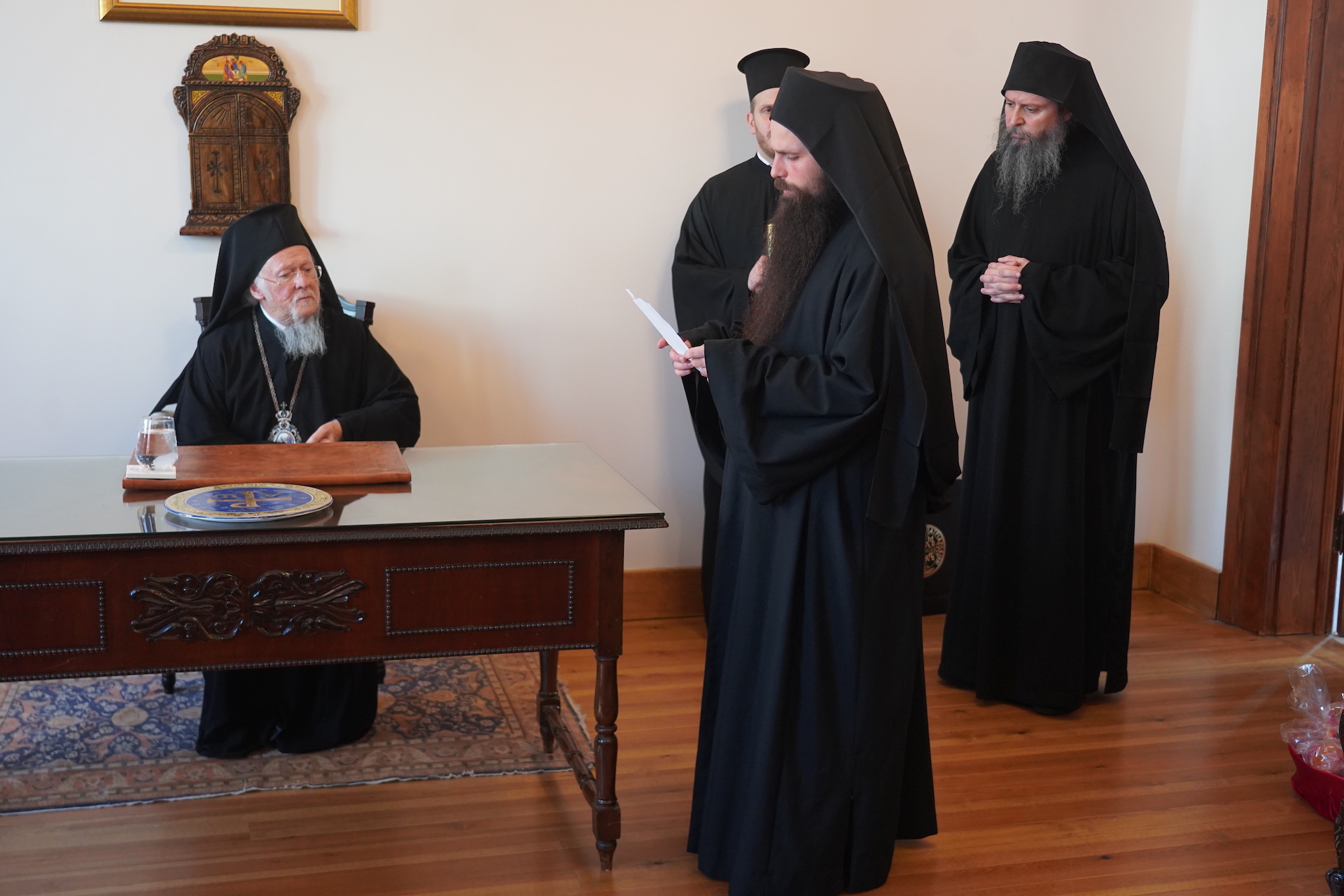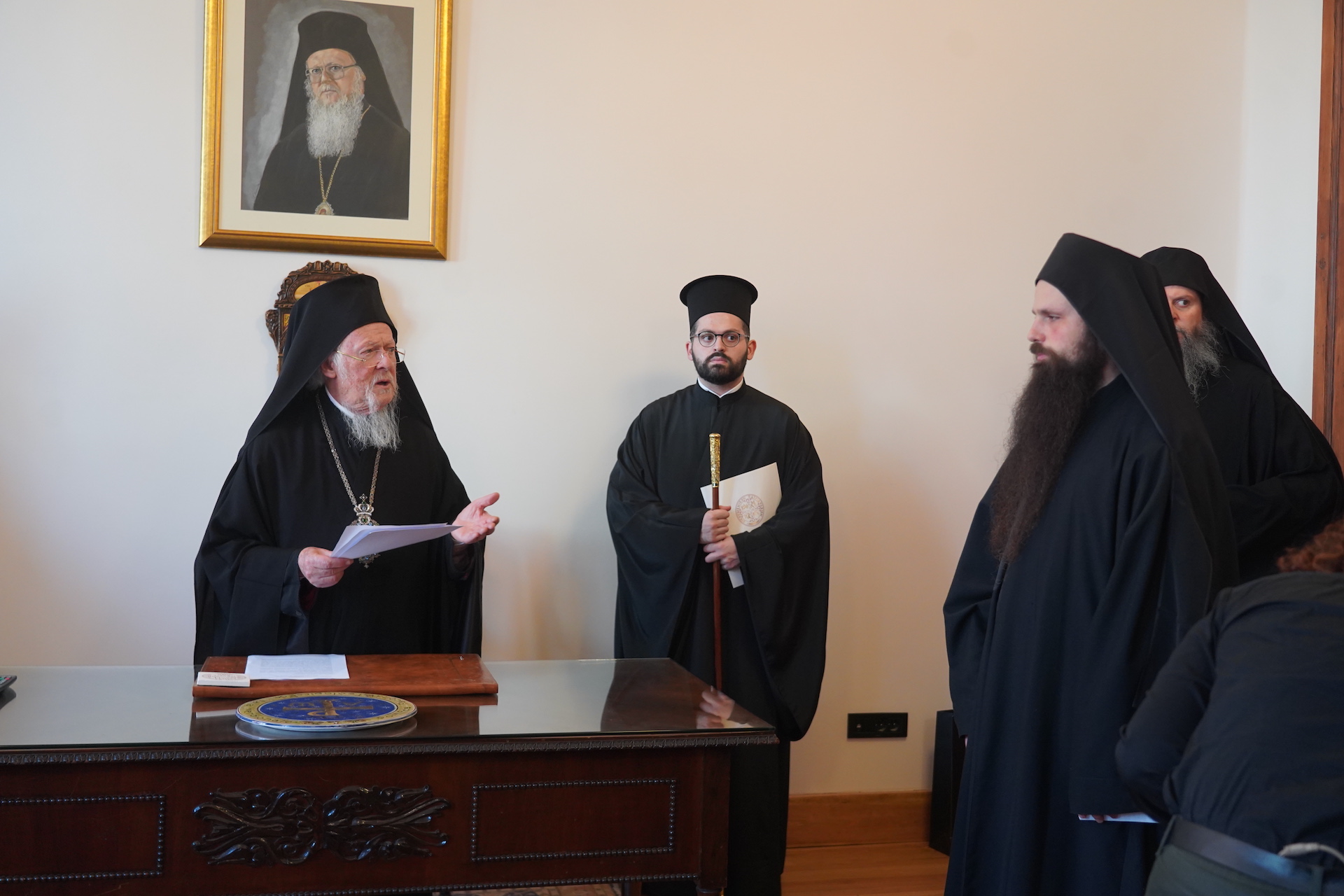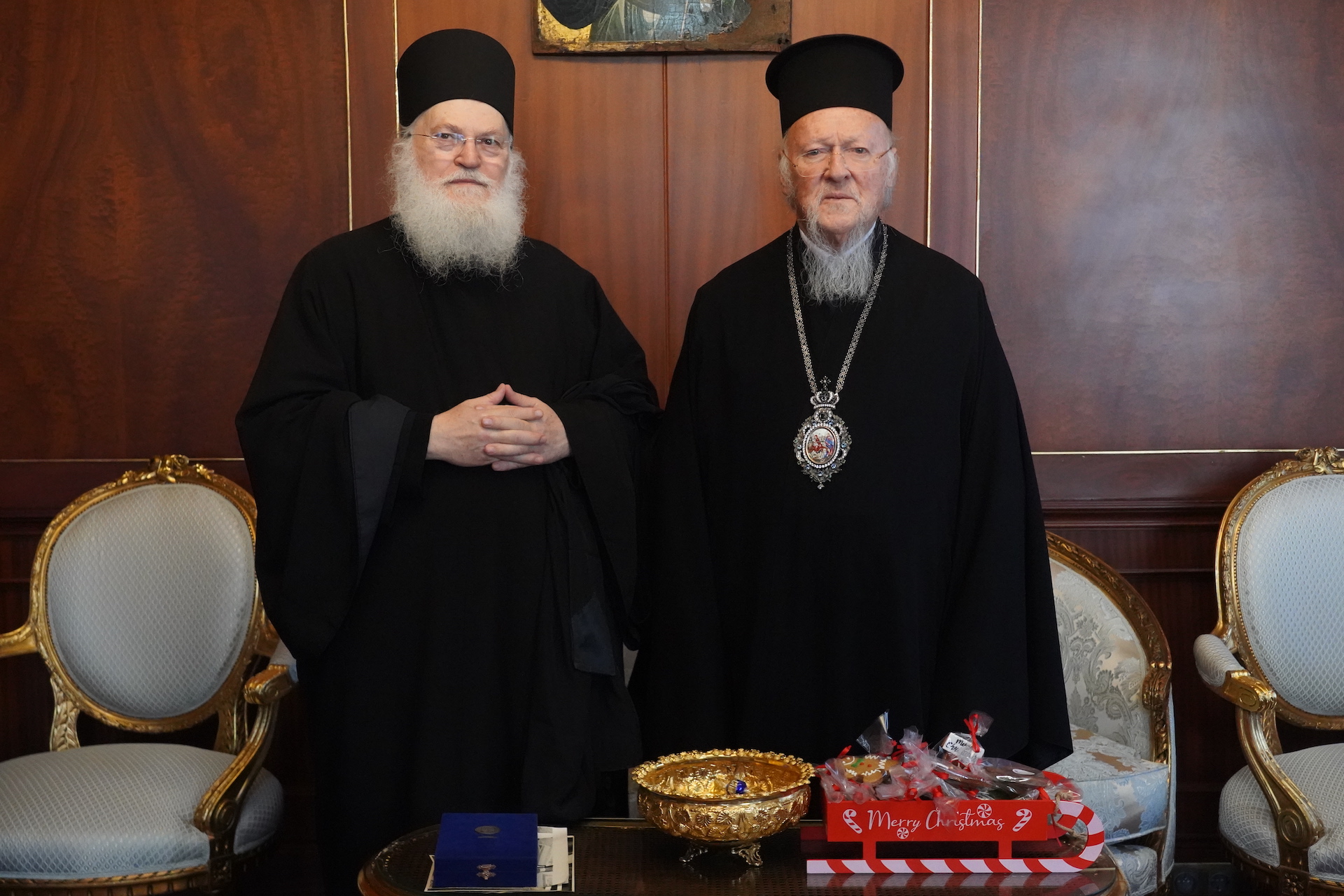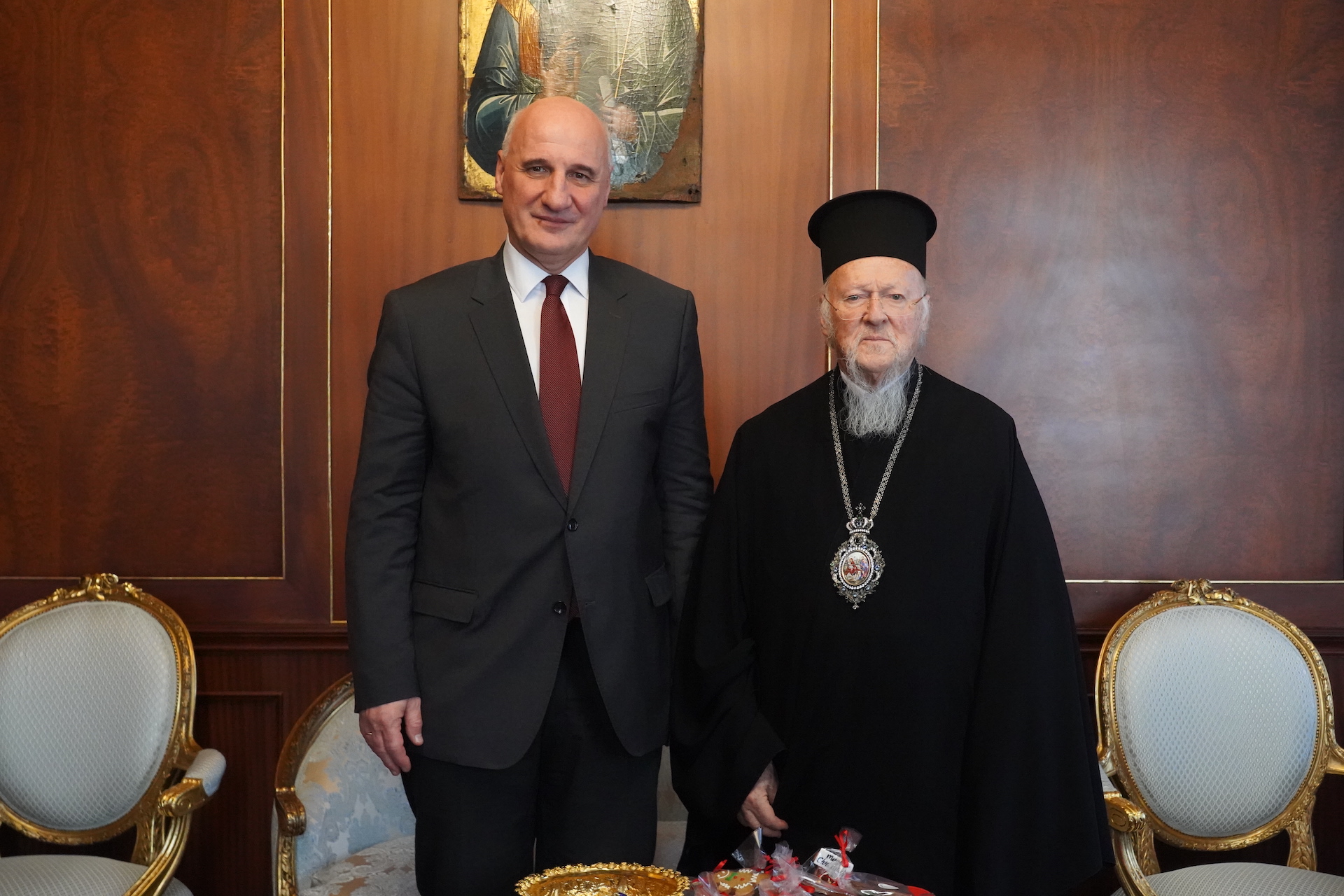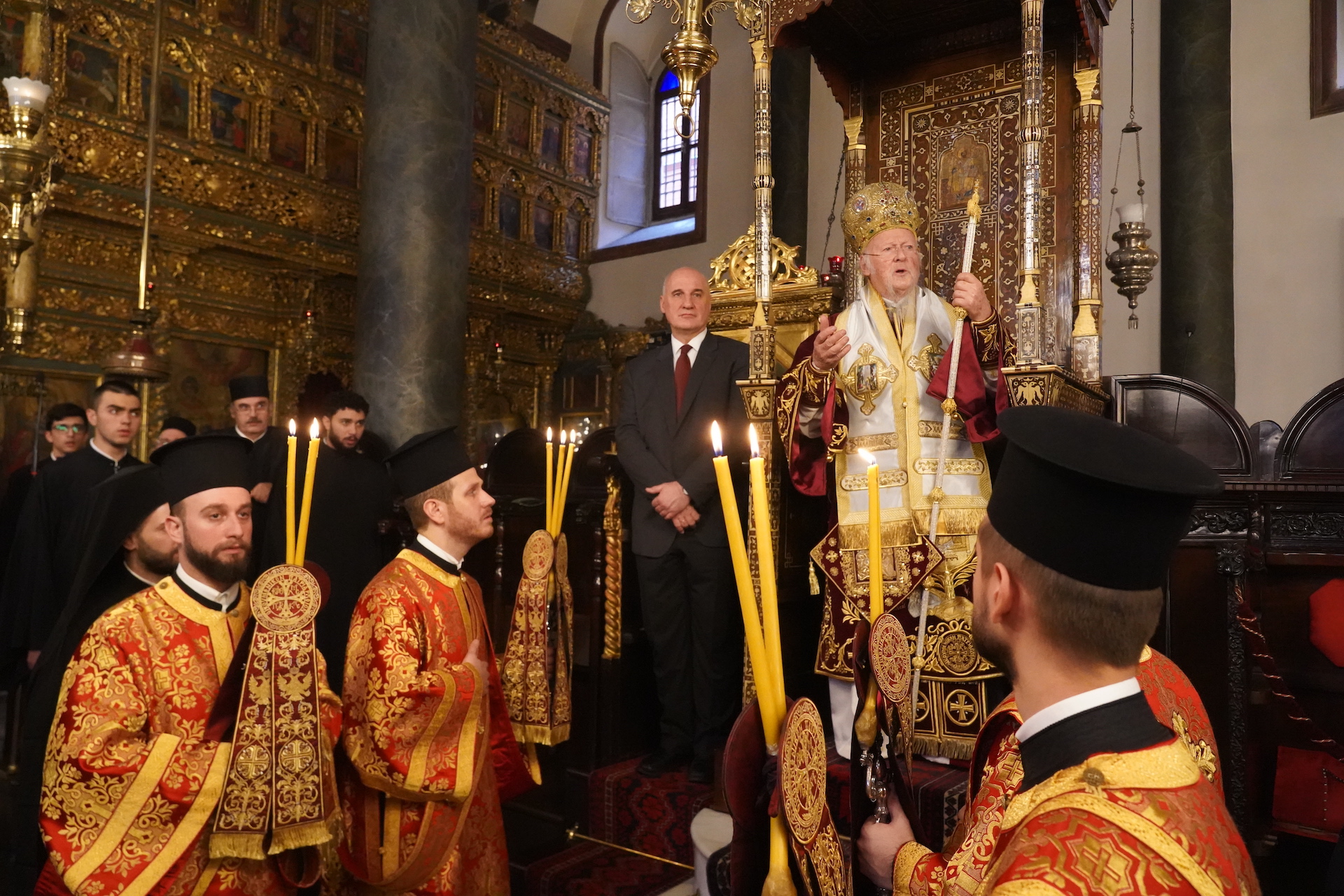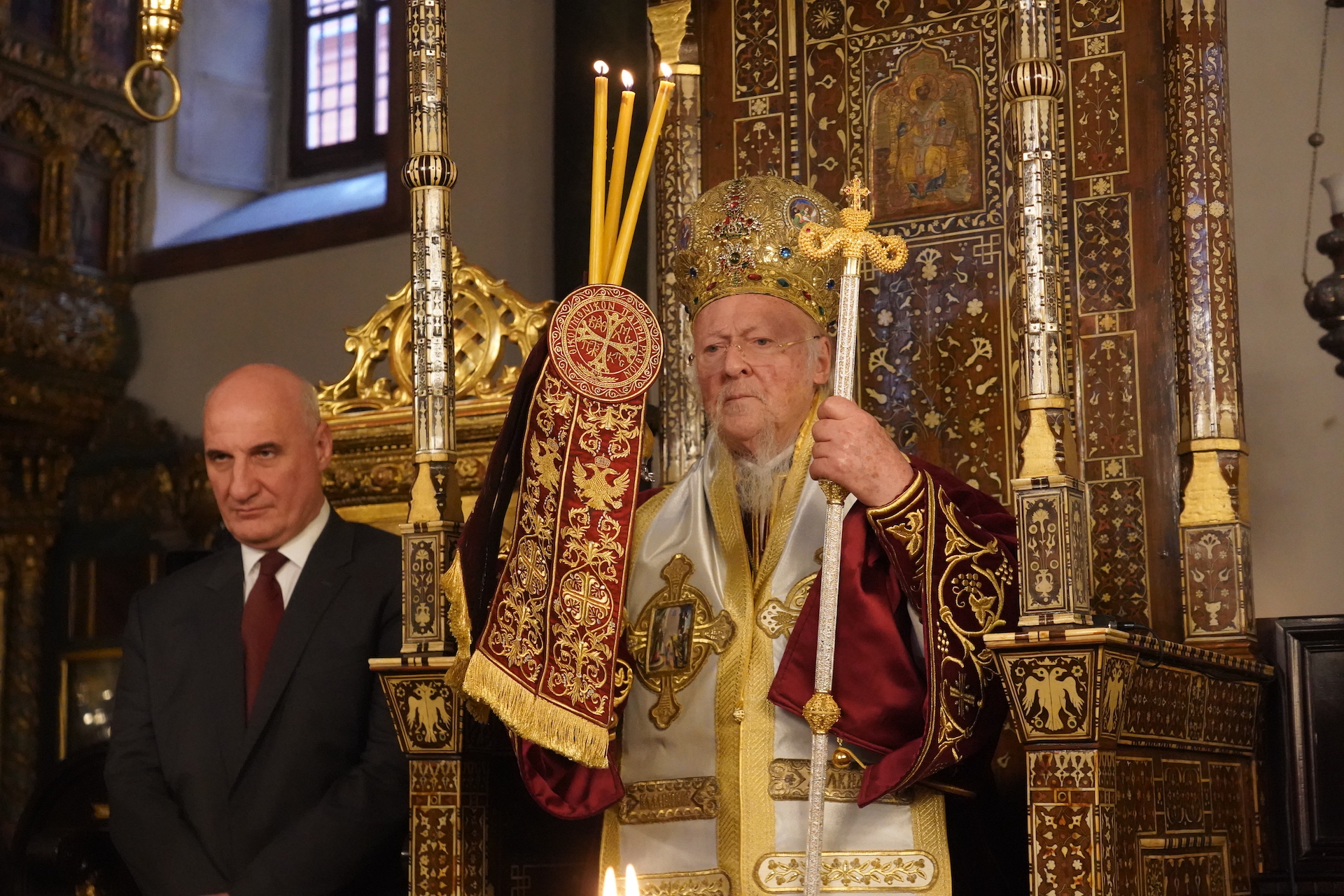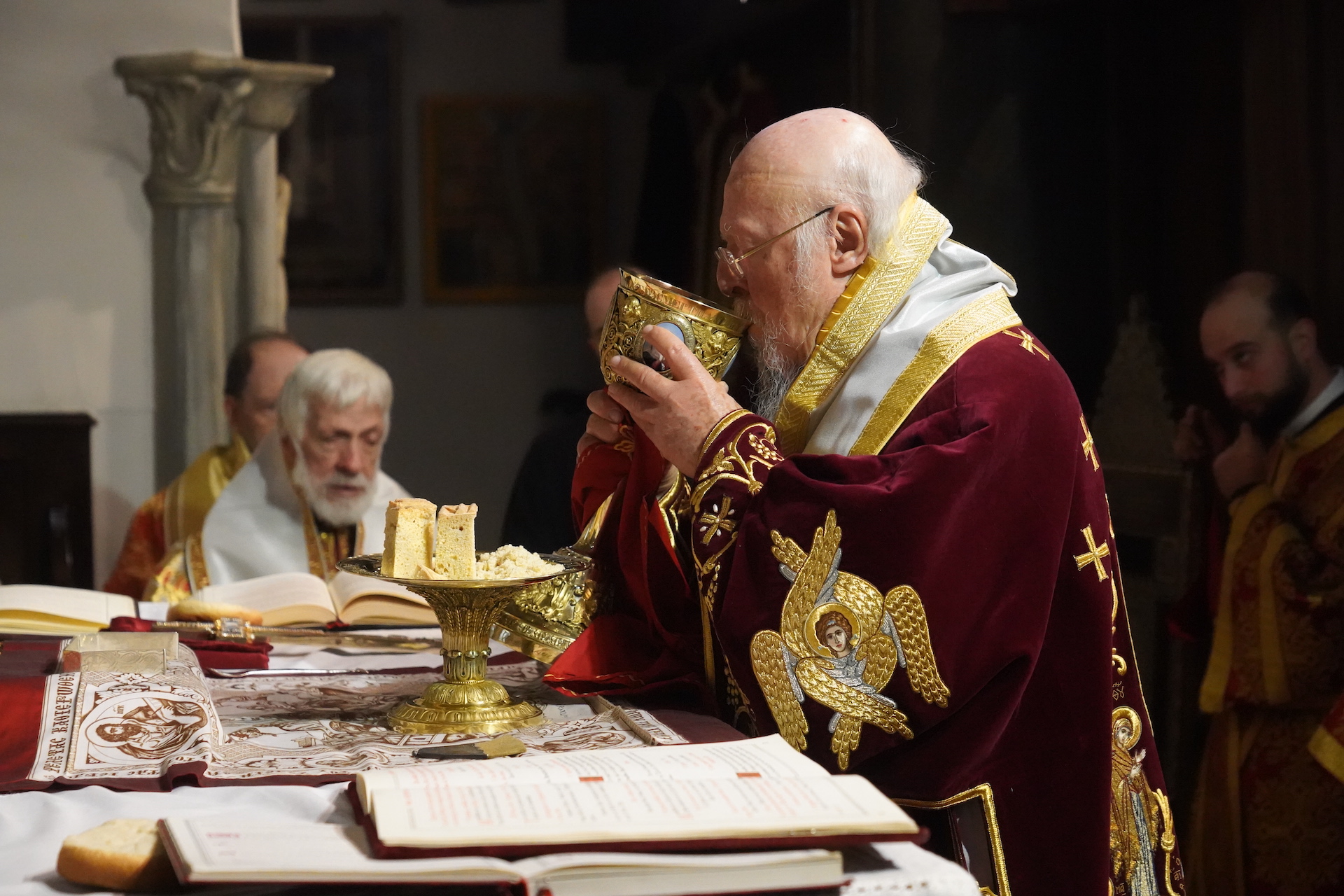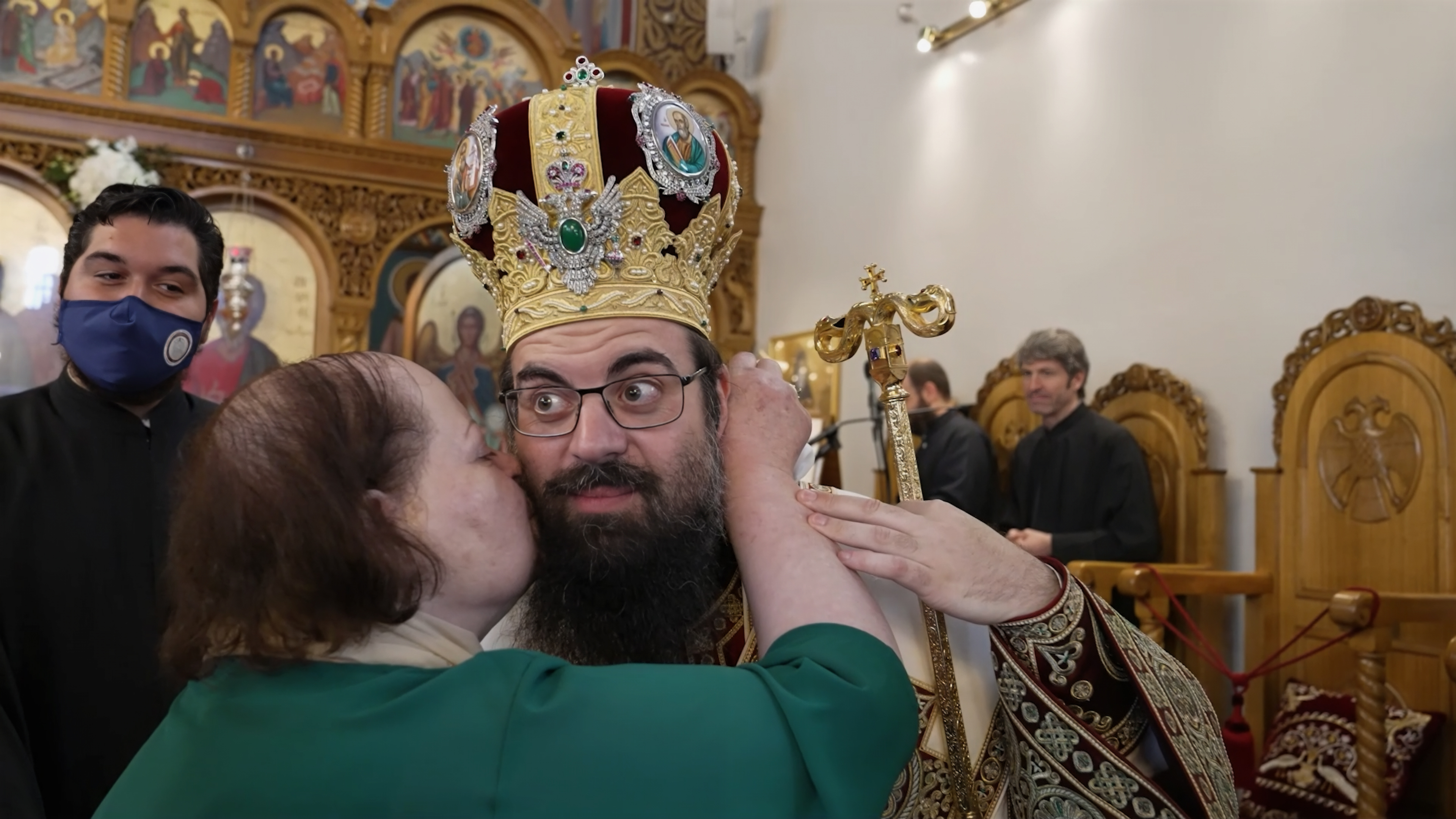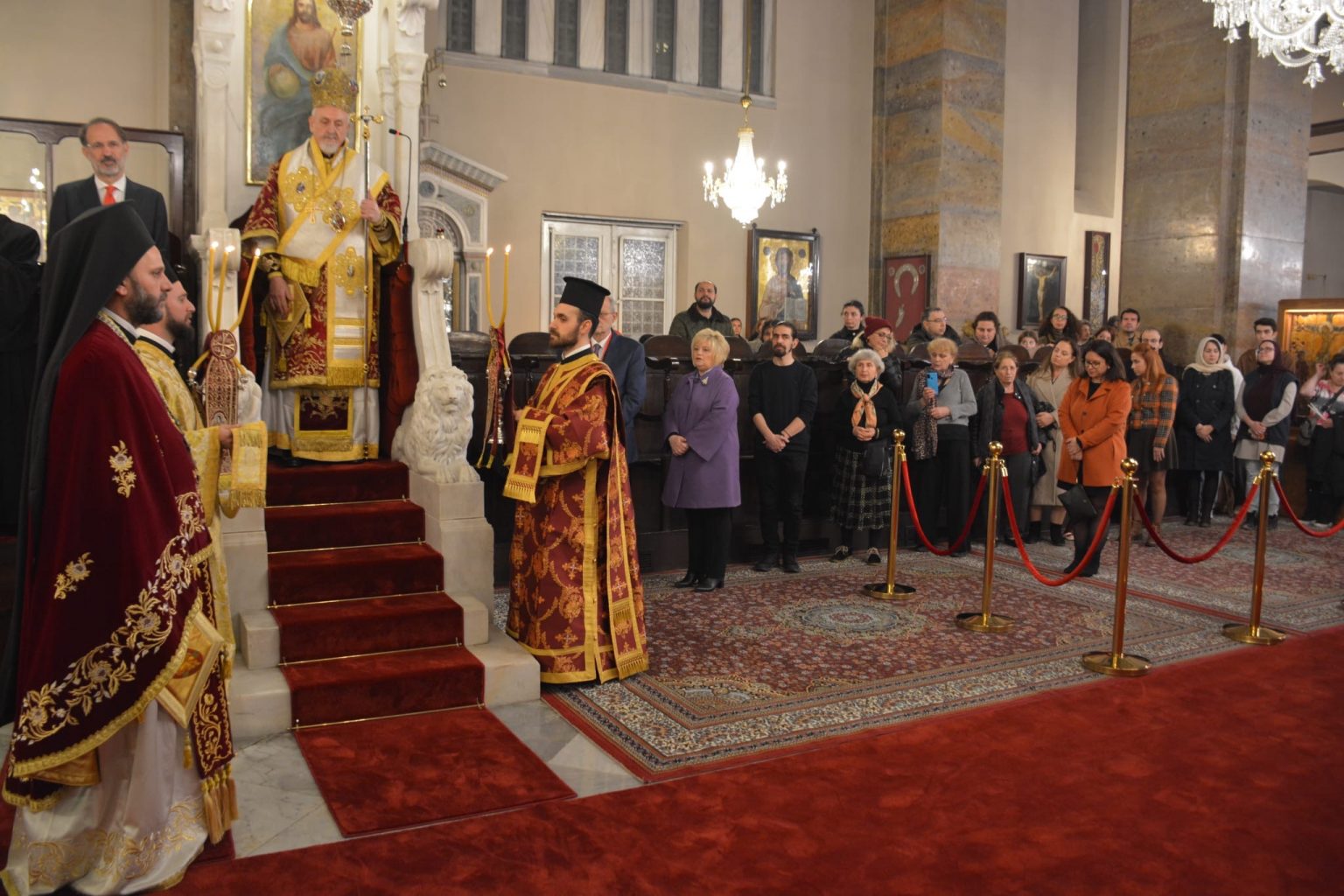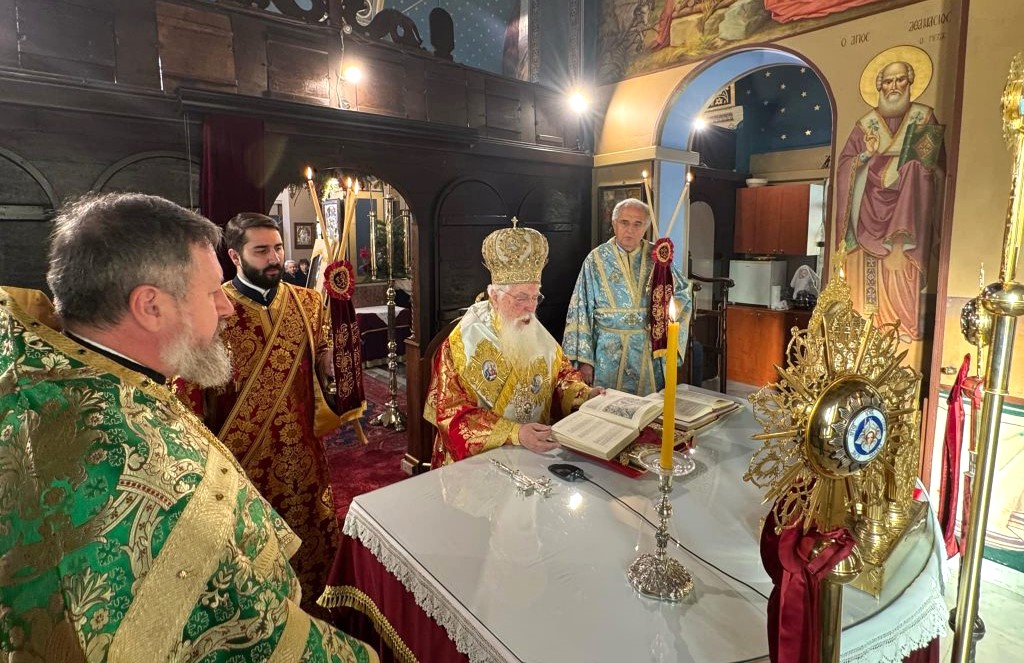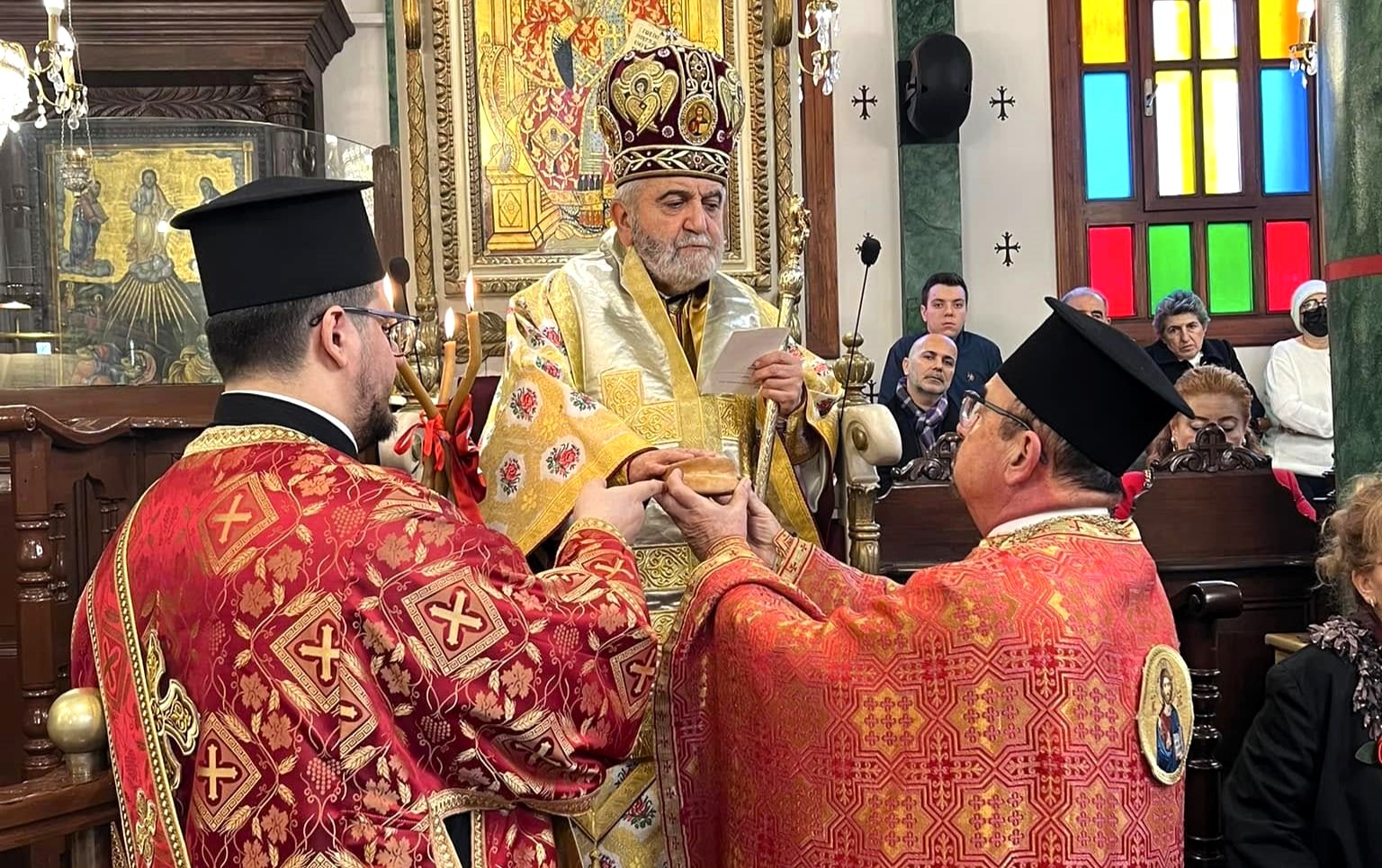The Feast of Christmas at the Patriarchal Church at the Phanar
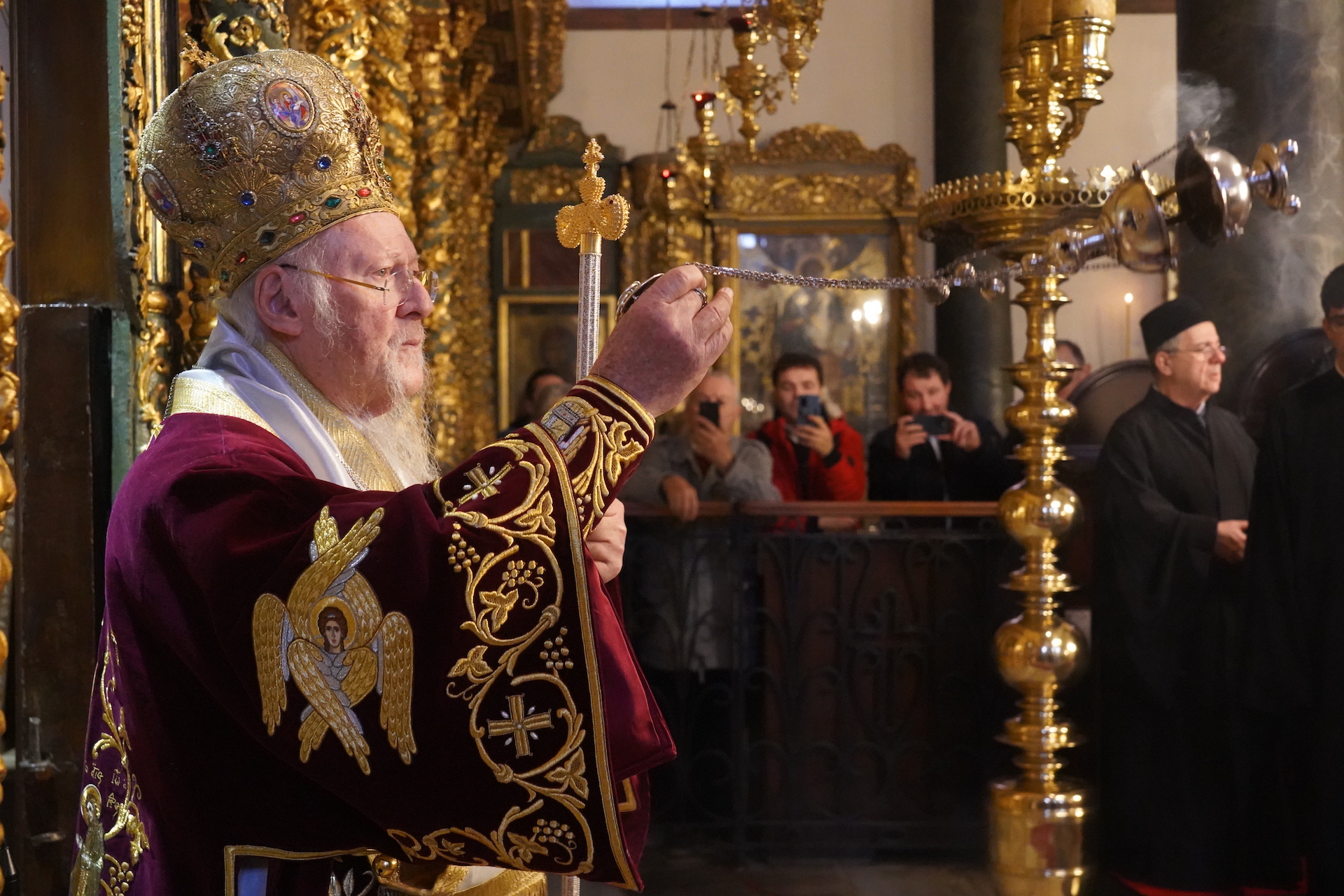

The Great Feast of the Nativity of our Lord and Saviour Jesus Christ was solemnly celebrated at the Ecumenical Patriarchate on 25 December 2024.
His All-Holiness Ecumenical Patriarch Bartholomew presided over the Divine Liturgy on Wednesday, 25 December 2024, which was concelebrated by Metropolitans Meliton of Philadelphia, Eirinaios of Myriophyton and Peristasis, Chrysostomos of Myra, Theoliptos of Iconium, Ioakeim of Bursa, and Theodoros of Seleucia. The Abbots of the Holy Monasteries, Archimandrite Ephraim of Vatopedi on Mount Athos and Archimandrite Peter of Saint John the Baptist in Essex, also participated.
During the Divine Liturgy, the Ecumenical Patriarch ordained Deacon Barnabas Christodoulou, a brother of the Monastery of St. John the Baptist, to the rank of Presbyter.
Additionally, the Chief Secretary of the Holy and Sacred Synod, Archimandrite Bosporios, read the Patriarchal Encyclical for Christmas.
The service was attended by clergy, monks from Mount Athos, representatives of the Christian communities of Constantinople, the Ambassador of Greece to Turkey, Theodore Bizakis, Archons of the Great Church of Christ led by the Secretary General of their Brotherhood “Panagia Pammakaristos,” Konstantinos Delikostantis, as well as the Consul General of Ukraine in Constantinople, Roman Nedilskyi, the Consul of Greece, Theophilos Georgakis, and numerous faithful from Constantinople and abroad.
The Ecumenical Patriarch later received the Ambassador of Greece at the Patriarchal Office, where they exchanged warm festive wishes. The Patriarch asked the Ambassador to convey his Christmas greetings and the love of the Mother Church to the Greek State and the devout Greek people. He then received in an audience the Abbot of the Vatopedi Monastery of Mount Athos, Archimandrite Ephraim, along with members of his brotherhood and his lay associates.


During the festive reception at the adjacent Maraslis Patriarchal Urban School, which, following its renovation, now serves the needs of the Patriarchate, the Ecumenical Patriarch offered paternal admonitions and advice to the newly ordained Presbyter of the Church. Among other things, he said:
“From today, you have become a priest of the Most High, a minister of His Sacraments. From now on, you will have the privilege of gazing upon the Holy Gifts before you, lifting the All-Holy Body of the Lord with your bare hands, and experiencing His presence in the Divine Eucharist.
As Saint Sophronius the Athonite aptly observed, ‘No matter how often we repeat this ministry, granted to us according to His benevolent providence, no matter how much we are continually filled with new experiences through immersion in the liturgical reality, we never reach the “end” of it.’
However, we are filled with both joy and fear, as partakers of the Divine Life, unable to detach ourselves from the unfathomable and revealed great plan of our Creator and Father.
“As God truly loved us and called us to be with Him forever and ever” (Archimandrite Sophrony Sakharov, We Shall See Him As He Is, 1993, Holy Monastery of Timios Prodromos, Essex, England, p. 350).
This testimony must radiate through your entire presence and life. The priest is both soul and body, wholly dedicated to his holy mission. Faithful to the call of Christ, he always speaks and acts in alignment with all that Christ, the Incarnate Word of God, preached and accomplished—in the event of His Cross and Resurrection, within His Church, and for His Church, whose flesh He took upon Himself.
Your spiritual and pastoral work must be conducted with discernment, delicacy, empathy, and respect for the unique characteristics of each person you encounter. There is no such thing as abstract or impersonal pastoral care.
Through your attitude and behaviour, you must exemplify the universality of salvation in Christ and the power of Christian love, which, on the one hand, knows no limits, and, on the other, is always a specific and person-centered concern for your neighbor.”
And the Ecumenical Patriarch added:
“It was said a few decades ago, as we have mentioned on another occasion, that the theologian and the priest must hold ‘the Bible in one hand and the newspaper in the other.’ This means that, alongside theology, it is essential to stay informed about worldly matters, understand the existential needs and aspirations of modern humanity, address social issues, and remain attuned to the spirit of the age and the trends shaping civilization.
Today, of course, everyone holds the captivating and brilliant smartphone, which contains everything—even the text of the Bible—though it is uncertain whether users will seek it out amidst the overwhelming sea of digital information.


The late Metropolitan of Pergamon and renowned theologian Ioannis Zizioulas observed that what Greek philosophy represented as a challenge to Christian theology for the great Fathers of the Church in the fourth century is, in modern times, mirrored by scientific knowledge and technological progress.
The dialogue between theology and science must not be a clash between adversaries but a collaboration between two great forces that serve humanity. It should be a partnership, not a rivalry. We are confident, dear Elder Barnabas, that you deeply understand this necessity, both as an expert in electronic computing and as an excellent theologian.
On the other hand, you belong to the clergy of the Ecumenical Patriarchate, which has never been an advocate of an inward-looking or closed Orthodoxy, as it follows the words of the Lord: “A city set on a hill cannot be hidden” (Matthew 5:14).
It has never conservatively fixated on the past but, with the certainty that Tradition is the very life of the Church in its uninterrupted continuity and cohesion, it has proclaimed the Gospel of freedom in Christ relevantly and timely to the present.
Introversion and insularity, whenever and wherever they appear, reflect an inner distortion of church life and spirituality. The causes and effects of such a condition are difficult to address, as they are often not recognized as a risk.
Subsequently, the Ecumenical Patriarch received heartfelt festive wishes in the same location from the Mayors of Beyoğlu (Pera), İnan Güney; Şişli, Resul Emrah Şahan; and Sariyer, Mustafa Oktay Aksu, as well as a representative of the Municipality of Beşiktaş.
In his brief speech in Turkish, he thanked them and their associates for their presence, emphasising that it demonstrated a spirit of unity and solidarity.
He expressed his hope for the same spirit to prevail in the Middle East, where thousands of our fellow human beings, especially children, live under the shadow of war, and once again called for the establishment of peace.


“We pray to Almighty God to stop the bloodshed,” said the Patriarch, expressing hope that politicians will end the war through dialogue.
Regarding the situation in Syria, he reiterated his support for the Patriarchate of Antioch and expressed his hope that the country’s new leaders will serve all citizens equally, regardless of religion, as they are all children of the same God.
Concluding his speech, he shared his joy for the upcoming visit of the Pope to Turkey and extended Merry Christmas wishes to all Christians living in the country, along with Happy New Year greetings to all citizens.
At noon, the Patriarch blessed the Christmas table hosted at Maraslis School, where, for the first time, he invited the monks of Constantinople to join and celebrate Christmas together with their spiritual father in a familial atmosphere.
Photographs: Nikos Papachristou

